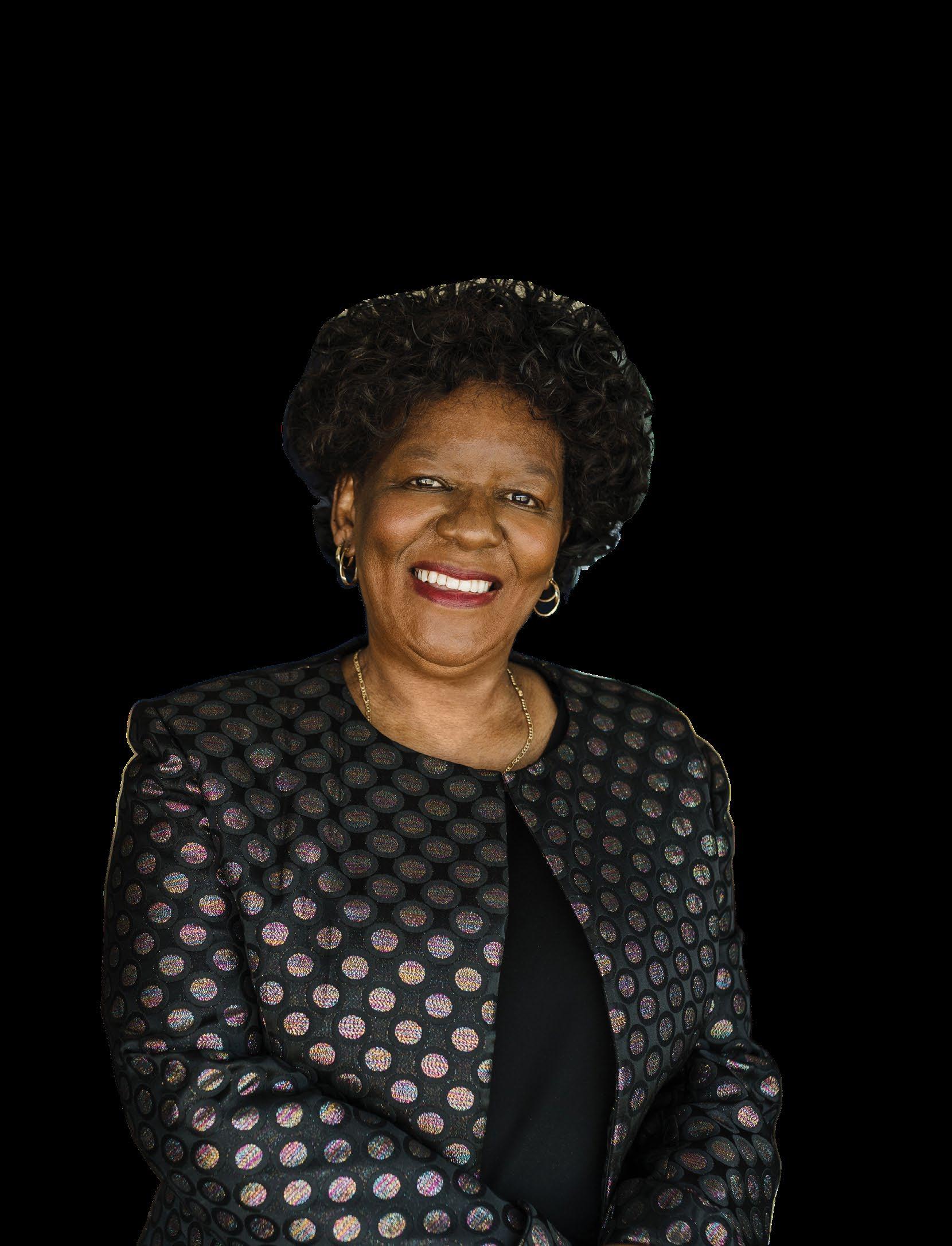
Why green
A BUSINESS INTERACTION PUBLICATION R75.00 Incl. VAT 9772411292008 24013 Volume 10 | Issue 2 | April 2024
HYDROGEN? Information | Innovation | Inspiration | Transformation
Africa’s unemployment crisis
South
a
investment
into the energy sector UMP driving UMP driving PROGRESSIVE CHANGE COVER FEATURE SKILLS LOCALLY Growing SINAYO:
Nuclear power:
viable
Diversifying



Cape Point Vineyards, a world-class winery by the sea, offers state-of-the art conferencing facilities to accommodate large or small business groups. +27 (0)21 789 0900 l info@cape-point.com l www.cpv.co.za Cape Point Vineyards, Silvermine Road, Noordhoek


 Tashne Singh
Tashne Singh

2024 is the election year – according to reports more than 50 countries are holding elections, including South Africa.
We all know that politics has a huge impact on business, and as 2024 is an election year there is a level of anxiety as to what the future holds.
Irrespective of one’s political leanings, we have to critically question are we collectively doing enough to get South Africa on track?

In the run-up to the election, we have heard various “promises” about service delivery, job creation and so forth. The reality is that government is responsible for creating an enabling environment for investment, which leads to job creation and, in turn, service delivery and so forth. At present we seem to be moving further away from achieving our goals – unemployment rates remain high, people are struggling with the high cost of living, and some still lack the basics such as water, shelter and food.
Citizens are frustatrated. Business is frustrated. We collectively need to question leadership across the board – elected government officials and leaders across various sectors.
We have the capacity to do better. Collectively we can enable a thriving future that is socially and economically secure.

Superfast server speeds Resources that rock Security you can count on from as little as www.ixist.co.za info@ixist.co.za STARTS HERE YOUR ONLINE REVOLUTION Web hosting from Get a domain + 2 months free on any of our annual plans.
Follow us... @SABImagazine NOTE Ed's South African Business Integrator Tashne
SPOTLIGHT on our future

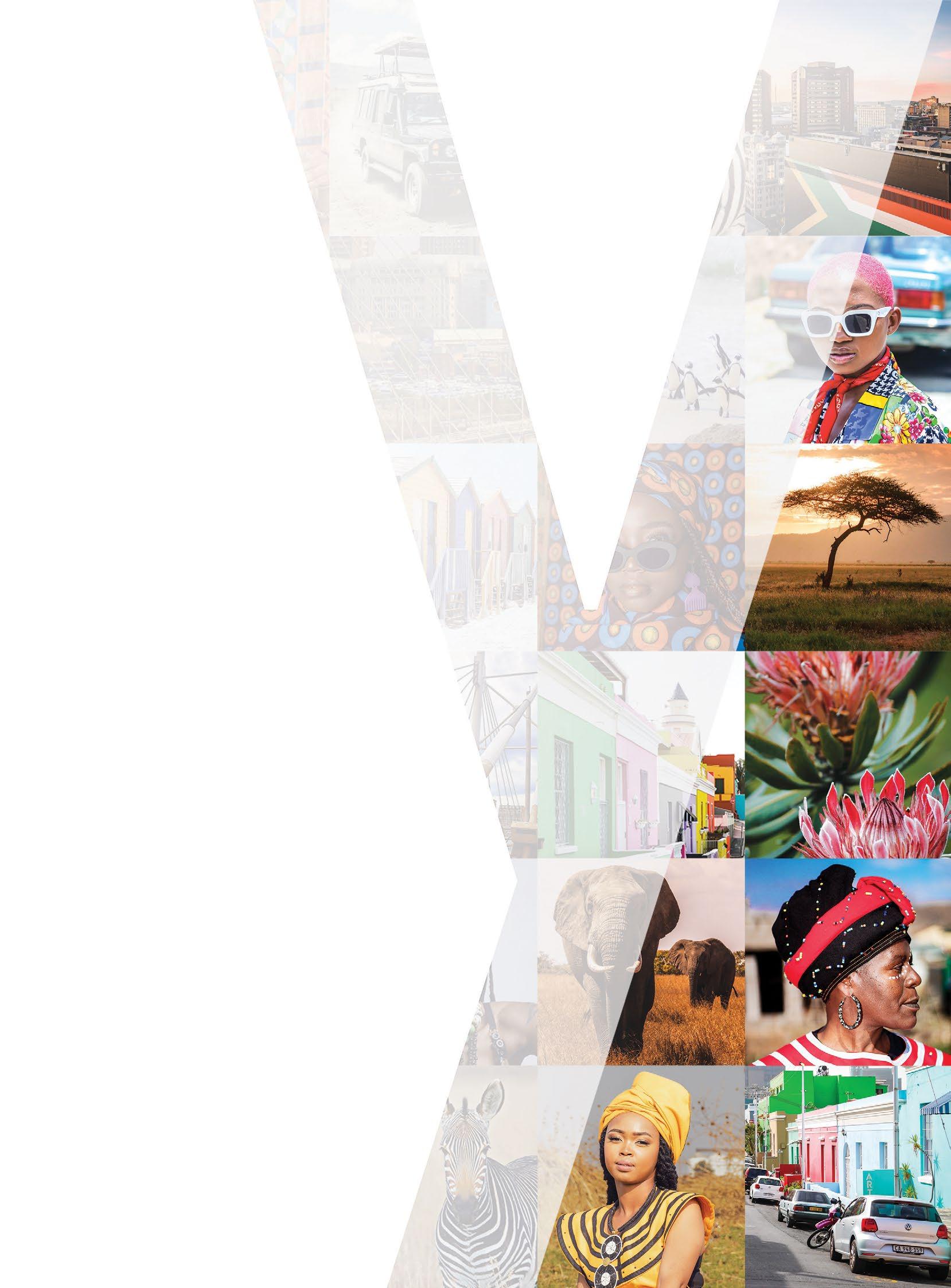

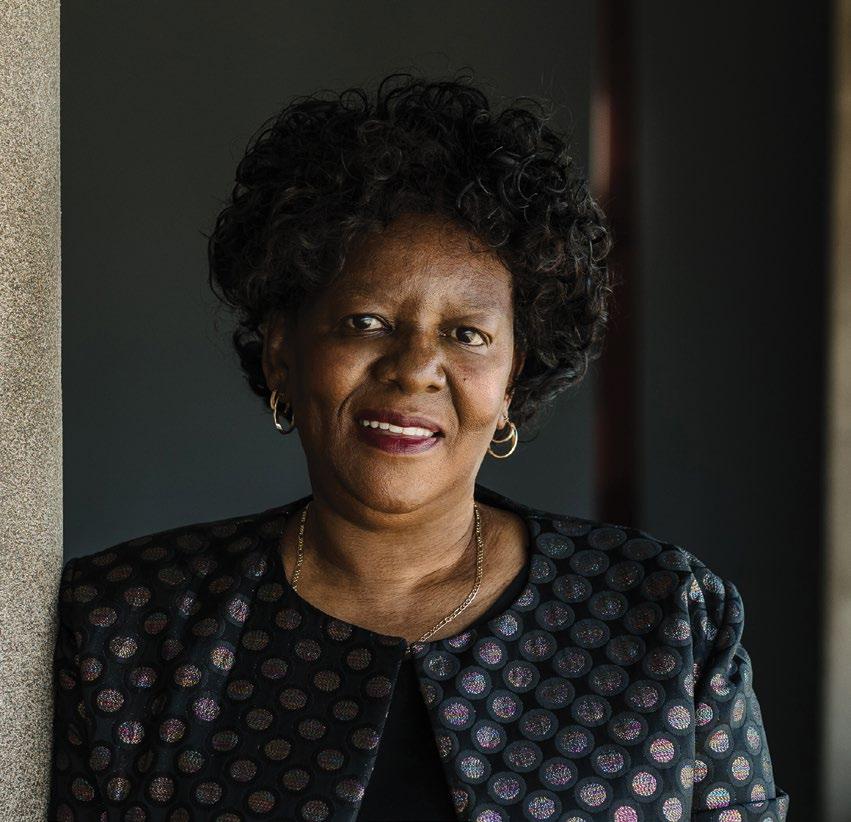





4 sabusinessintegrator.co.za CONTENTS 8 COVER FEATURE: UMP driving progressive change 14 SA’s youth need better policies to thrive 16 Growing skills locally 18 Skills development & growth for the agricultural sector 20 South Africa’s unemployment crisis 24 Q AND A: Sinayo Diversifying into the energy sector 30 Why green hydrogen? 32 Nuclear power: a viable investment to address the electricity crisis 34 2024 must be the year of sustainable investment 38 New health risks for businesses 40 Protection of water resources 42 SA’s 2024 Budget & its impact on taxpayers 46 Landmark judgement challenges retirement norms 48 2024 earnings threshold announced 8 14 30 18 38 46
32 Russell Street, Mbombela, 1201 Mpumalanga, South Africa



We take pride in offering a quiet, peaceful environment which we like to call an “Oasis in the City” where our guests can unwind and recharge. Our 6800 square metre property has extensive terraced gardens with Royal Palms, indigenous trees, cascading pools and an expansive poolside patio on which to entertain or just relax and soak up the Lowveld ambience.
Exquisite orchids grace many of the trees and Greek statues and trickling fountains are hidden in shady corners of the fairy-tale garden. A variety of birds call these gardens home, their song heard throughout the day. Intimate and tasteful, this well-secured Mediterranean-style home has been refurbished and converted into an elegant, executive destination for travellers from all over the world.
Christies at 32 on Russell is the perfect location for day trips or a stopover en route to the Kruger National Park.
Reservations
+27 (0)13 755 3169
+27 (0)76 657 7391 bookings@32onrussell.co.za
www.christies32onrussell.co.za
Restaurant
+27 (0)13 250 0513
+27 (0)78 095 0578 thepatio@32onrussell.co.za
www.thepatiorestaurant.co.za
Spa
+27 (0)13 753 3257
+27 (0)82 686 6295 aniska@skinandart.co.za
www.aniska.co.za
South African Business Integrator
@SABImagazine


















PUBLISHER
Elroy van Heerden-Mays elroy@mediaxpose.co.za



EDITOR
Tashne Singh editor@sabusinessintegrator.co.za
SUB-EDITOR
Jacky Dyer sub@mediaxpose.co.za






CONTENT MANAGER
Wadoeda Adams artwork@mediaxpose.co.za











DESIGNERS
Anja Bramley artwork1@mediaxpose.co.za
Okay Deer


DISTRIBUTION

PUBLISHED BY







COVER IMAGE PHOTOGRAPHER
IMAGE CREDITS: 123rf.com


Media Support | On the Dot

Shaun van Heerden-Mays artwork2@mediaxpose.co.za
EDITORIAL CONTRIBUTORS
Nicholas Woode-Smith
Ursula Fear
Ziyanda Sibeko
Eustace Davie
Dr Karen Surridge
Zizamele Mbambo

Carl Roothman
Beatrie Gouws
Deon Visagie
Brett Abraham
Mehnaaz Bux
ADVERTISING SALES MANAGER
Rashieda Wyngaardt rashieda@sabusinessintegrator.co.za
ADVERTISING SALES
Siya Ngoni siya@mediaxpose.co.za
MEDIA PARTNERSHIPS | EDITORIAL ASSISTANT
Maurisha Niewenhuys maurisha@mediaxpose.co.za
DIGITAL AND SOCIAL MEDIA
Kyla van Heerden social@mediaxpose.co.za
Tia Arendse tia@mediaxpose.co.za
Temo Mpodi temo@mediaxpose.co.za
DISTRIBUTION & SUBSCRIPTIONS
Shihaam Gyer distribution@mediaxpose.co.za
6 Carlton Crescent, Parklands, 7441
Tel: 021 424 3625 Fax: 086 544 5217
E-mail: info@sabusinessintegrator.co.za
Website: www.mediaxpose.co.za
Disclaimer: The views expressed in this publication are not necessarily those of the publisher or its agents. While every effort has been made to ensure the accuracy of the information published, the publisher does not accept responsibility for any error or omission contained herein. Consequently, no person connected with the publication of this journal will be liable for any loss or damage sustained by any reader as a result of action following statements or opinions expressed herein. The publisher will give consideration to all material submitted, but does not take responsibility for damage or its safe return.
CHIEF FINANCIAL OFFICER
Shaun van Heerden-Mays shaun@mediaxpose.co.za
ADMIN ASSISTANT
Ketsia Makola ketsia@mediaxpose.co.za
WEBSITE DEVELOPER/ADMINISTRATOR
Justin McGregor justin@mediaxpose.co.za
RECEPTION
Daniëla Daniels receptionist@mediaxpose.co.za
CREDITS
A BUSINESS INTERACTION PUBLICATION A BUSINESS INTERACTION PUBLICATION R75.00 Incl. VAT 9772411292008 24013 Volume 10 Issue 2 April 2024 Why green HYDROGEN? Information | Innovation | Inspiration Transformation South Africa’s unemployment crisis Nuclear power: a viable investment Diversifying into the energy sector UMP driving UMP driving PROGRESSIVE CHANGE COVER FEATURE SKILLS LOCALLY Growing SINAYO:
sabusinessintegrator.co.za
6

UMP DRIVING
progressive change
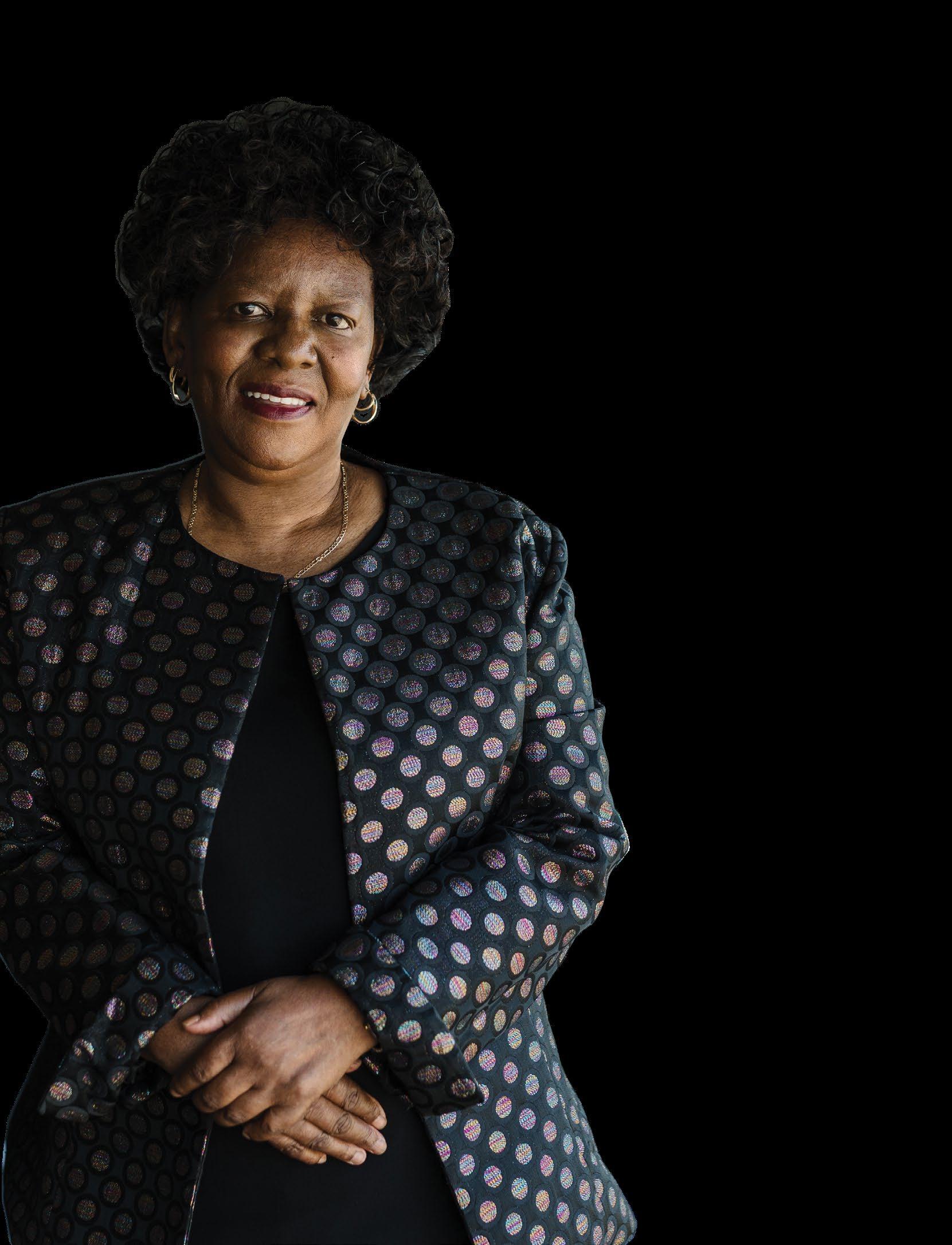
Prof Thoko Mayekiso, Vice-Chancellor at the University of Mpumalanga (UMP) talks to South African Business Integrator about the pioneering journey of UMP, which speaks to South African realities and enables tangible solutions.
PROF THOKO MAYEKISO VICE-CHANCELLOR AT THE UNIVERSITY OF MPUMALANGA
Q&A: UNIVERSITY OF MPUMALANGA
8 sabusinessintegrator.co.za
What are your thoughts on the role of higher education institutions in addressing the challenges South Africa faces, and also placing SA on the map in terms of being a country of innovation and talent?
Universities are, by definition, social institutions. As learning centres, they are established to be at the forefront of identifying their societies’ social and economic developmental challenges and opportunities. As social institutions, they tend to reflect their societies. This is precisely why the University of Mpumalanga was intentional from the get-go that it would become an authentic African University. A University that recognises, affirms, and welcomes the African experience and context in the academic project. UMP encourages and fosters an innovative and entrepreneurial approach, and it also keeps a close eye on sustainable development goals to engage with issues informed by where the world is headed.
Tell us a bit about the impact of UMP.
UMP is significantly contributing to socio-economic development through job creation and education. UMP has enrolled 10 041 students in 2024, and 86% come from the Province of Mpumalanga. We have graduated 4 485 (2 861 females and 1 624 males), and 125 of them graduated cum laude. Many of these students are employed in the Province of Mpumalanga, and many others are pursuing postgraduate studies.
Additionally, UMP has established the Centre for Entrepreneurship Rapid Incubator (CFERI) to promote entrepreneurship and creative problem-solving in staff and students. The Centre plays a pivotal role in imparting the entrepreneurship DNA to students, regardless of their field of study.
At UMP, we aim to produce innovative and entrepreneurial graduates who are intellectually curious, independent, creative thinkers, and able to innovate by applying their knowledge and skills to solve novel and routine problems for sustainable development. In support of the entrepreneurship drive, UMP is a member of a consortium of nine Asian universities.
Opportunities such as WIL (Work Integrated Learning) and leadership vacancies created by industry assist in improving learners' preparedness for the world of work and improve their chances of absorption by the constrained markets.
Through initiatives like ENACTUS, UMP students' innovative and entrepreneurial competencies are enhanced.
What do you attribute UMP’s incredible growth over the past decade to?
The key drivers of the UMP’s growth are the state-ofthe-art facilities and iconic infrastructure with the latest teaching, learning, and research technology.
The University is committed to the holistic development of students, and we endeavour to enable our students to realise their full potential across the spectrum of cognitive, social, aesthetic and personal dimensions in pursuit of democratic citizenship. The reputation of the institution in producing well-rounded students is growing. As a comprehensive institution, the University offers academic programmes ranging from Higher Certificates to Doctoral Degrees.
At UMP, we aim to produce innovative and entrepreneurial graduates who are intellectually curious, independent, creative thinkers, and able to innovate by applying their knowledge and skills to solve novel and routine problems for sustainable development."
We offer career-oriented, professional and general formative qualifications to enhance the employability of our students. Therefore, the University is offering both access and articulation possibilities. The University has highly qualified academic staff, 52% of whom have doctoral degrees. All these factors coalesce to create a conducive ecology, contributing to the overall culture of excellence the University engenders in staff and students.
What are some of the highlights?
They are as follows:
• The opening of the Tfokomala Hotel and Conference Centre, a 4-star Hotel, at the Mbombela Campus will provide experiential learning opportunities for
Q&A: UNIVERSITY OF MPUMALANGA
9 sabusinessintegrator.co.za
students registered for the Diploma in Hospitality Management.
• Student numbers increased from 169 in 2014 to 10 041 in 2024.
• The increase in academic programmes from three in 2014 to 72 in 2024 (2 Higher Certificates, 6 Diplomas, 7 Advanced Diplomas, 4 Postgraduate Diplomas, 14 Bachelor’s Degrees, 20 Honours Degrees, 14 Masters Degrees, and 5 Doctoral Degrees).
• Our research performance was recognised by the National Research Foundation through the National Research Foundation Acceleration Awards in 2022 and the National Research Foundation CEO’s Special Recognition Award in 2023.
• We won the Standard Bank Top Women Business Icons 2022 – An Honorary Legend of Empowerment and Transformation.
• We received the Built Environment Award from the Council for the Built Environment in 2023 in the category, “State-Owned Entity That Implemented Infrastructure Projects Timeously”.
• We have received unqualified (clean) audit opinions from the External Auditors for nine consecutive years since inception in 2014.
• Our pass rate has consistently been between 80% and 85%.
A PIONEERING LEADER AT THE HELM
UMP has achieved much since its inception. Having previously held leadership positions such as heading up academic departments in already established educational institutions, what has the journey been like for you to be at the helm of driving growth at a newly established institution?
When I took the leadership role at UMP on 1 November 2014, I was acutely aware of the enormous responsibility and privilege of being a pioneering leader at the newly established University. The enormity of the task did not escape me, and my commitment to the pioneering project was unwavering. It was evident that one would need to approach this task of being at the institution’s helm with unfettered imagination and compassion. The challenge to leave footprints and prints on hearts was as exciting as it was daunting. There was no question that my vision would come to fruition. I would have to bring an attitude of wholeness and sufficiency to this task, as well as a mindset of abundance.
There will always be one Founding Vice-Chancellor, and it is a humbling experience to be part of the pioneering journey, “luhambo lwemhlahlandlela”.
Trailblazing, pathfinding and pathbreaking would have to be part and parcel of our fabric. The unique attributes of pioneers, namely, resilience, vision, grit and determination, would form a considerable part of our approach."
What lessons can other institutions, businesses, and governments learn from UMP regarding enabling growth?
A compelling vision, followed by a clear mission and strategic objectives set a tone for the institution to grow. Over and above that, adherence to values cascaded throughout the institution makes it possible for staff and students to pull in the same direction. A culture of excellence – and human relations informed by empathy and trust have enabled growth.
How has your leadership style enabled growth?
My leadership style has enabled growth at UMP. During my inauguration on 30 May 2015, I made the following statement:
“Pioneers have to build a firm foundation, mindful that what they are creating should be durable, marketable, sustainable and enduring. Generations yet unborn must find a thriving university, one they will be proud to join, because we who pioneered it laid a firm foundation and got into this immense project with body, mind and soul”.
These words spurred us on and had a prophetic ring about them.
As a registered Clinical Psychologist, I knew well that it took courage for students and staff to join a new institution. My responsibility was to ensure that
Q&A: UNIVERSITY OF MPUMALANGA
10 sabusinessintegrator.co.za
I nurtured their confidence – that innermost strength of believing in themselves. At the outset, excellence would have to be the institution’s lifeblood. I had to remember that for others to buy into this great opportunity of being trailblazers at UMP, the tone should be set at the leadership level. Trailblazing, pathfinding and pathbreaking would have to be part and parcel of our fabric. The unique attributes of pioneers, namely, resilience, vision, grit and determination, would form a considerable part of our approach.
Building trust, welding a team and dealing with conflicts are inevitable matters when working with people. The listening ear approach stood me in good stead as I worked with staff and students. The key to being a responsive Vice-Chancellor lies in the socalled three L’s: listen, learn, and lead. The challenge is to balance empathetic listening and learning with acting. It is essential to listen to all the voices on campus and to listen with empathy. Whilst tuned in and having empathy, I am conscious of holding others accountable. Many years of leading and managing have taught me that one size does not fit all. Being amenable to persuasion by others when their points of view had merit was necessary.
Humans are individuals, and it is, therefore, vital that you meet them at their uniqueness. Emotional intelligence, having purpose and passion, and being informed by possibility go a long way. I found it quite helpful to keep asking myself, “What am I doing here?” and ‘’What is my purpose?” to keep the focus on what needed to be done and not to be distracted.
Being consistent and treating all staff equally have proved helpful. Exuding excellence, insisting on excellence and having the courage to hold each of us accountable have been powerful tools on our pioneering journey.
I have realised that the University community wants to see their Vice-Chancellor, and they want to know her. Therefore, no event is too trivial or unimportant not to justify the Vice-Chancellor’s presence. I have been consistently visible.
Yes, we know that there are not enough hours in the day. It is essential that effort be made and the Vice-
Chancellor be accessible to the University community. The message conveyed to the University community, especially to students, is that my door is open, and there is no need to kick it.
What were some of the most challenging aspects of running a new public university, and how did you overcome these challenges? Growing our academic offerings from the three programmes launched in 2014 and broadening our Programme Qualification Mix required our urgent attention. We had to work closely with the Department of Higher Education and Training (DHET), the Council on Higher Education (CHE), the South African Qualifications Authority (SAQA) and several higher education institutions nationally and internationally. We were, therefore, juggling many balls in the air. We had to multitask and perform different roles at the same time.
When one sees the iconic infrastructure of the University and the vast expanse of land it now occupies, one tends to forget the pangs and pain of pioneering. The pressures from some organisations and communities threatened to scupper our plans. We remained resolute and unwavering, ensuring that our new infrastructure programme continued without interference.
Universities are about profile, reputation and branding. Loyalty to a brand, commitment and pride are not automatic processes. The t-shirts worn on the third Friday of every month by both staff and students with the tagline, “I love my campus: UMP My Campus My Pride“, is a campaign which was introduced in 2017. Loving the beautiful campus, jealously guarding it and being proud of it runs in our students and staff’s arteries and veins.
What is your most outstanding achievement to date, and what legacy would you like to leave?
My most outstanding achievement is the solid foundation that has been laid for the University to achieve its strategic intent: “To be an African University leading in creating opportunities for sustainable development through innovation”.
We take pride in the tremendous accomplishments the University has made in the past ten years and envisage a pathway to success for many years to come.
Q&A: UNIVERSITY OF MPUMALANGA
11 sabusinessintegrator.co.za

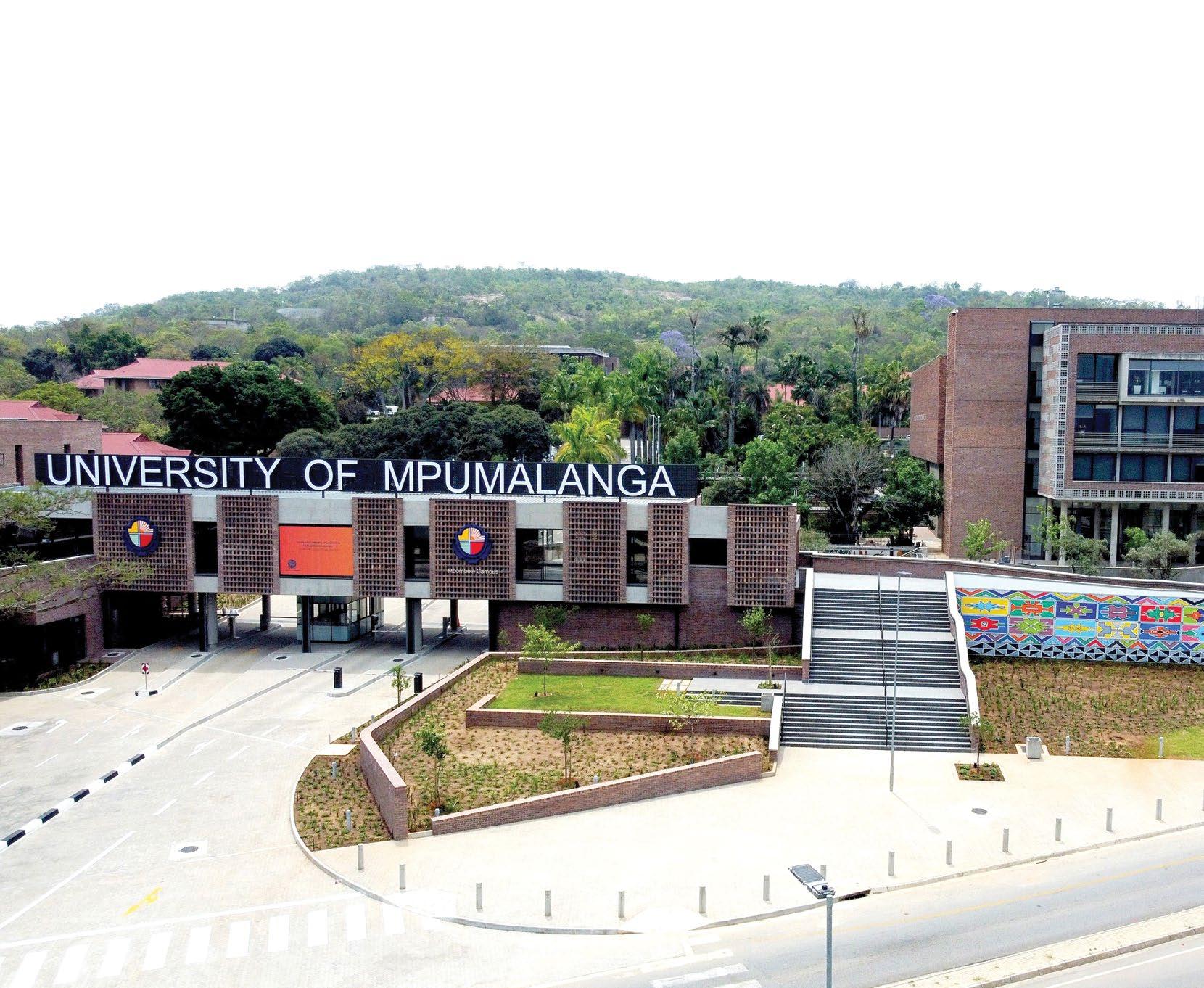
PREPARE YOURSELF FOR THE FUTURE AND BE READY FOR OPPORTUNITIES BY STUDYING AT THE University of Mpumalanga
THE FUTURE OF WORK
Requires graduates who are Innovative, Entrepreneurial, Adaptable, Resourceful, Responsive, Responsible, Ethically and Socially Aware, Confident and Effective Communicators FOR
www.ump.ac.za
MORE INFORMATION
| Tel: +27 13 002 0001 | E-mail: info@ump.ac.za

Our programmes
One-year higher certificate programmes
• Higher Certificate in Information Communication Technology in User Support
• Higher Certificate in Event Management
Three-year diploma programmes
• Diploma in Culinary Arts
• Diploma in Agriculture
• Diploma in Nature Conservation
• Diploma in Animal Production
• Diploma in Hospitality Management
• Diploma in Information Communication Technology in Applications Development
One-year honours programmes
• Bachelor of Honours in Development Studies
• Bachelor of Agricultural Extension and Rural Resource Management Honours
• Bachelor of Commerce Honours in Economics
• Bachelor of Commerce Honours in Business Management
• Bachelor of Administration Honours
• Bachelor of Arts Honours (General)
• Bachelor of Science Honours (General)
• Bachelor of Arts Honours in Geography
• Bachelor of Arts Honours in English
• Bachelor of Arts Honours in Sociology
• Bachelor of Arts Honours in Psychology
• Bachelor of Arts Honours in Industrial Psychology
• Bachelor of Arts Honours in siSwati
• Bachelor of Science Honours in Entomology
• Bachelor of Science Honours in Geography Three-year programmes
• Bachelor of Development Studies
• Bachelor of Agriculture in Agricultural Extension and Rural Resource Management
• Bachelor of Science (General)
• Bachelor of Science in Environmental Sciences
• Bachelor of Commerce (General)
• Bachelor of Administration
• Bachelor of Arts (General)
• Bachelor of Information Communication Technology
Four-year undergraduate programmes
• Bachelor of Education in Foundation Phase Teaching
• Bachelor of Science in Agriculture
• Bachelor of Science in Forestry
• Bachelor of Laws
• Bachelor of Social Work
• Bachelor of Science Honours in Ecology
• Bachelor of Honours in Gender Studies
• Bachelor of Education Honours in Teaching and Learning
• Bachelor of Arts Honours in Political Science
• Bachelor of Arts Honours in Culture and Heritage Studies
One-year full-time and two-year part-time programmes
• Master of Development Studies
• Master of Education in Early Childhood Education
• Master of Agriculture in Agricultural Extension
• Master of Science in Agriculture
• Master of Science
• Master of Arts
• Master of Commerce
• Master of Commerce in Business Management
• Master of Arts in English Language and Literature
• Master of Arts in siSwati Language and Literature
• Master of Arts in Industrial Psychology
• Master of Arts in Psychology
• Master of Arts in Geography
One-year postgraduate programmes
• Advanced Diploma in Agriculture in Agricultural Extension
• Advanced Diploma in Nature Conservation
• Advanced Diploma in Agriculture in Post-Harvest Technology
• Advanced Diploma in Agricultural Production Management
• Advanced Diploma in Hospitality Management
• Advanced Diploma in Information Technology in Applications Development
• Advanced Diploma in Animal Production
• Postgraduate Diploma in Nature Conservation
• Postgraduate Diploma in Information Communication Technology
• Postgraduate Diploma in Hospitality Management
• Postgraduate Diploma in Agriculture
• Master of Computing
• Master of Administration
Doctoral degrees
• Doctor of Philosophy in Agriculture
• Doctor of Philosophy in Development Studies
• Doctor of Philosophy in Humanities
• Doctor of Philosophy (Commerce)
• Doctor of Philosophy (Science)

SA’s youth need better policies to thrive
SA could benefit dramatically from shifts in global demographics if we only adopted the right policies and supported the correct institutions to harness our youthful population and material resources. Unfortunately, we live under a regime that not only neglects education and infrastructure but actively restricts its youth from prospering.
By Nicholas Woode-Smith, Author, Economic Historian, Political Analyst and Contributing Author for Free Market Foundation
Author, and Contributing Author for Free Market Foundation
"SA lacks the necessary policy frameworks and institutions to harness our youthful population or pre-existing industries and infrastructure. "
EMPLOYMENT
14 sabusinessintegrator.co.za
SA has the potential to be a global economic powerhouse. We have the world’s largest reserves of gold, platinum, chrome ore and manganese ore and the second-largest reserves of zirconium, vanadium and titanium. We also have abundant diamonds, uranium, copper, nickel, and coal supplies. Some of the largest and most successful mining companies reside in SA, providing the industry, capital and expertise to extract these resources and sell them to a global market or jumpstart local manufacturing. This could enrich us all.
However, despite our abundant resources, pre-existing industry and need to develop, our youth unemployment remains above 50% (in 2022). This is usually blamed on a lack of education and infrastructure, but many matriculants and university graduates still struggle to find jobs. Moreover, shouldn’t a developing country like ours be able to provide opportunities for our youth, regardless of their education level? There is a place for everyone in an economy. We must not fixate on providing a university education to every South African. This will not solve our problems. We need skilled workers, tradespeople and blue-collar workers who want to work, not waste time on a pretentious degree.
The need for new policy frameworks
Education is not the root cause of our unemployment. Rather, SA lacks the necessary policy frameworks and institutions to harness our youthful population or preexisting industries and infrastructure. SA’s government, driven by an obsession with socialist ideology and Marxism, has become fixated on policies that sabotage economic growth and actively contribute to unemployment.
BEE and affirmative action policies discourage the growth of businesses, allow the political capture of enterprises, and actively dissuade companies from employing anyone at all. The political empowerment of unions into local superpowers ensures that while union members will become privileged and overpaid, there will continue to be far too many barriers to entering the workplace for young prospective workers. This situation is exacerbated by far too many regulations that complicate conducting business unnecessarily. Labour regulations unfairly benefit the employee, discouraging employers from hiring new blood. The Reserve Bank tightly controls money transfers into the country, making it difficult for South Africans to seek remote work because it leads to increased taxes.
The path to success
If SA wants to harness its youthful demographic, it must make this country friendly to businesses and employers. That means making it easier to hire and fire workers, removing political interference in business, and cutting swathes of regulations that only chase companies and skilled workers away.
We should consider eliminating the minimum wage to make it as easy as possible to get a job and encourage workers to keep seeking better employment so that deserving employees are rewarded for their efforts while newer workers are given a chance.
The path to success isn’t for everyone to get a degree. It is for jobs to be created that people can then fulfil. If we become friendly to businesses, SA’s demographics and resources will finally be able to elevate the country to the economic status it deserves.
All it takes is a commitment to free market principles and the realisation that employment requires an employer to create a job.
EMPLOYMENT
15 sabusinessintegrator.co.za
SKILLS Growing
LOCALLY


South Africa faces a skills crisis, especially regarding digital knowledge, which will revolutionise the world. Yet, sourcing international professionals to fill the local digital skills gap is not sustainable in the long run, writes Ursula Fear, Salesforce Senior Talent Programme Manager.
"Companies that hire young people with real-life practical skills therefore have the advantage of work-ready employees equipped with appropriate digital skills for the job."
The catalogue of critical skills South Africa needs to fill was published by the Department of Home Affairs in a gazette in October 2023. It is long and includes skill sets in engineering, physics, chemistry, geology, and veterinary science. The list of 142 desperately needed talents also highlights the need for filling positions for Chief Information Officers (CIOs), call centre managers, IT systems analysts, data scientists, software developers, and programme analysts, among other Information and Communication Technology (ICT) roles.
There is a common thread running through this list: the most in-demand areas are
SKILLS TRAINING
16 sabusinessintegrator.co.za
in science, technology, engineering, and mathematics (STEM) qualifications. The fact that there is demand for ICT skills is not in question. The first Career Junction Employment Insights Report for 2024 shows that the demand for IT professionals ranked third in hiring activity, behind business management and finance.
As a temporary solution to this impasse, President Cyril Ramaphosa suggested in the State of the Nation Address (SONA) that highly skilled professionals must be brought into the country. Ramaphosa also indicated that the country’s labour supply “does not match demand” from companies looking to employ “management-level personnel” and other professionals like engineers and science and maths educators.
Youth unemployment is currently at 51.52% in South Africa, according to the Quarterly Labour Force Survey 2023. The youth remain vulnerable in the labour market. However, the third quarter of 2023 results show that the total number of unemployed youth (aged 15–34 years)
Future demands
In the ICT sector, our most significant focus must be on the talent South Africa urgently requires. Collective X published a list of demand-led digital skills, which includes AI engineers, data scientists, automation engineers, cloud engineers, and big data developers, to name a few. This information is confirmed by the 2022 JCSE-IITPSA ICT Skills Survey, which lists similar jobs for the sector but also includes a need for cyber security, artificial intelligence (AI) specialists, forensic investigators, and app developers.
While we need AI specialists to help solve local technology challenges, we need to ensure that these specialists are empowered to implement solutions rapidly, monitor, and ensure the best security practices for AI. The world is moving towards one in which AI will be pervasively integrated into business systems and processes. With that comes an increased risk of cyberattacks, and the future will require knowledgeable IT professionals who can implement solutions, especially if South Africa is to be globally competitive.
Yet, Salesforce research has indicated that more than 60% of full-time desk workers do not have the skills to use generative AI technology – even though most are
decreased by 174 000 to 4.6 million, while there was an increase of 237 000 in the number of employed youth to 6 million.
A new training approach
The resolution to the problems of youth unemployment and the skills crisis lies in how we train youth before they enter the workplace. Professional ICT certifications are not enough to meet the rate of change needed in the workplace. Companies that hire young people with reallife practical skills therefore have the advantage of workready employees equipped with appropriate digital skills for the job.
The 2022 JCSE-IITPSA ICT Skills Survey noted that in 2019, many stakeholder groups were implementing solid skills development initiatives to improve the capability and employability of young people. However, the report said that only hundreds of candidates benefited instead of the thousands who need to go through these programmes.
convinced this knowledge will advance their careers. As a result, training the next generation and reskilling the current generation regarding AI is a critical component of the tech revolution.
We need to act urgently to mitigate the possibility of having too many certified yet unemployable young people entering the workforce. Importing talent is not a long-term solution, and we cannot extend the contracts of those who enter the country to fix the problem now. We need to upskill locally and ensure that we have the talent to take the vital technology sector, which contributes about 8% to the economy, to the next level.
South Africa requires a mindset change, and the government needs help to address the skills crisis. It requires collaboration and partnership from the business sector to form long-term solutions that tangibly address the existing digital skills gap by providing youth with hands-on experience. Education and tertiary certifications form a critical component of empowering our current and future ICT workforce, but what is truly needed is the provision of hands-on experience and mentorship to sustainably develop leaders and entrepreneurs of the future and grow the South African economy.
SKILLS TRAINING
17 sabusinessintegrator.co.za
Skills development
& GROWTH FOR THE AGRICULTURAL SECTOR
The agricultural sector is the backbone of the South African economy and plays a vital role in food security, job creation, and overall economic growth. However, the sector faces a constant challenge – ensuring it has a skilled workforce equipped to handle the complexities of modern agriculture.
By Ziyanda Sibeko, Senior Associate at Webber Wentzel

At the same time, industry stakeholders could bridge the gap between education and employment by working with universities and training providers to design relevant programmes and offer internship opportunities."
SKILLS DEVELOPMENT
18 sabusinessintegrator.co.za
The
need for skilled labour: a changing landscape
Gone are the days of traditional farming solely relying on inherited knowledge. Modern agriculture is a technologically advanced and data-driven industry. Precision agriculture, utilising tools like sensors and drones, allows for more efficient use of resources and improved crop yields. Automation and robotics increasingly play a role in farm operations, requiring workers with machinery operation and maintenance expertise. Additionally, concerns around sustainability and environmental impact demand a workforce that understands best practices for soil conservation, water management, and responsible use of agrochemicals.
This shift necessitates a skilled workforce capable of adapting to these advancements. Filling this gap requires comprehensive skills development programmes collaborating with organisations like Sector Education and Training Authorities (SETAs), particularly the AgriSETA. This industry-led organisation acts as a bridge between government, industry stakeholders and educational institutions. It focuses on
Challenges and Opportunities: A Look Ahead
Despite the growing focus on skills development, the agricultural sector still needs to overcome hurdles. Limited funding for training programmes necessitates creative solutions to secure resources. Additionally, bridging the gap between what is taught in schools and the realities of the industry is crucial to ensuring that graduates are well-equipped. Finally, attracting and retaining young talent requires making agriculture a more appealing career path, ensuring the sector’s long-term sustainability.
However, along with challenges come exciting opportunities. Technological advancements could revolutionise skills development, offering online learning platforms and engaging training simulations. Additionally, increased awareness about the importance of sustainability in agriculture can attract young people with a passion for environmental responsibility.
ensuring high-quality training by accrediting providers, directly investing in the future workforce through funding learnerships, bursaries and internships, and collaborating with universities, training providers, and government agencies to develop and implement effective training programmes.
Educational institutions, both public and private, play a critical role in equipping future generations with the necessary agricultural skills. Universities could offer degree programmes in agricultural science, agribusiness management, and related fields. Additionally, vocational schools and training centres could provide more targeted training programmes in areas like horticulture, precision agriculture, or animal husbandry.
Upskilling the existing workforce is equally important. Adult education and training programmes allow existing farmers and agricultural workers to learn new skills, stay updated on technological advancements, and adapt to changing industry demands.
Building a Collaborative Future
A collaborative effort is essential if SA is to build a future-proof agricultural workforce. The government could pave the way with policies that encourage skills development. At the same time, industry stakeholders could bridge the gap between education and employment by working with universities and training providers to design relevant programmes and offer internship opportunities. Educational institutions, in turn, must provide flexible and industryaligned courses that cater not only to young people entering the field but also to existing workers seeking to upskill. Finally, farmers play a crucial role by investing in the skills development of their existing workforce and participating in mentorship programmes to cultivate the next generation of agricultural leaders.
The agricultural sector can build a more skilled, innovative, and adaptable workforce by prioritising skills development. This, in turn, will lead to increased productivity, improved food security, and sustainable growth for the entire industry.
Skills development is the cornerstone of a thriving agricultural sector. By investing in training programmes, fostering collaboration between stakeholders, and embracing innovative learning methodologies, the agricultural industry can cultivate a future filled with growth and prosperity.
SKILLS DEVELOPMENT
19 sabusinessintegrator.co.za
South Africa’s
UNEMPLOYMENT
CRISIS
No fewer than 7.895 million South Africans were jobless at the end of last year, most of whom remained jobless in March this year. This is almost double the number of people without jobs at the end of 2008.
By Eustace Davie, Director at the Free Market Foundation
Moreover, this is around two million more than were jobless at the end of 2018 when the new National Minimum Wage Act (NMWA) was imposed upon our country’s working population. In other words, the number of jobless people increased by one-third after the NMWA became law. These are official statistics, and they are not open to informed debate.
Women and people with lower levels of education suffer the most under higher levels of unemployment. SA statistics show that 76.1% of men and as many as 80.6% of women were long-term unemployed.
However, the shocking effect of labour law in SA is that it keeps so many young people out of work and deeply despondent. South Africa now claims the dubious distinction of having the highest level of youth unemployment on the African continent. An almost unheard of 60.75% of 16 to 24-year-olds are without jobs in this wonderful country. This level of unemployment has never before been seen in SA.
Onerous minimum conditions of employment, compulsory minimum wages and a plethora of further regulatory conditions imposed on employers serve to consign young South Africans, in large numbers, to the ranks of the long-term unemployed. Costs imposed on small firm employers frequently exceed the economic value of hiring one additional employee.

OPINION
20 sabusinessintegrator.co.za
Women and people with lower levels of education suffer the most under higher levels of unemployment."

HELP NEED A JOB
OPINION
21 sabusinessintegrator.co.za
Does the Bill of Rights play a positive role?
When the South African government steps out of line and inflicts legislation or regulations upon its citizens that conflict with the Constitution, the citizens should be able to turn to the Constitution for relief. Onerous over-regulation of the labour market has resulted in mass unemployment. The implementation of the NMWA by the South African Parliament is certainly unconstitutional. Victims of this legislation should expect to be able to turn to the Human Rights Commission and the Constitutional Court to assist with removing these barriers to their employment.
The reality is that there has been no mention of the Bill of Rights, particularly not Section (7)(1), which states that “This Bill of Rights is a cornerstone of democracy in South Africa. It enshrines the rights of all people in our country and affirms the democratic values of human dignity, equality, and freedom. And Section (7)(2), which decrees that the state must respect, protect, promote, and fulfil the rights in the Bill of Rights.” There has been no opposition from the Human Rights Commission to implementing the NMWA. Given that this conflicts with section 9 of the Bill of Rights (the Equality Clause), the minimum wage is patently unconstitutional, and limiting the rights of the people rendered unemployed as a result is not justifiable.
A report issued by the Human Rights Commission states that: “While the mandate of the Commission includes promoting respect for human rights and a culture of human rights, promoting the protection, development and attainment of human rights and monitoring and assessing the observance of human rights in the country, such mandate is intricately linked to the mandate of the state in section 7(2) of the Constitution to respect, protect, promote and fulfil the rights in the Bill of Rights.” It is unfortunate, therefore, that the Commission does not intervene in defence of the young people who have been rendered jobless by this unjust legislation.
Depriving job seekers and employers of their right to freedom of contract
Labour laws that seek to increase the job security of people already in employment necessarily conflict with the contractual rights of the unemployed and their potential employers. If that were not so, there would be nothing to stop jobseekers from contracting freely with employers on mutually agreeable terms. Few people
should be unemployed when there is unrestricted freedom of contract.
Implementing the minimum wage law, which deprives the unemployed of their right to freely contract with employers of their choice at wages and conditions of employment acceptable to both parties, conflicts directly with Section (7)(1) of the Bill of Rights. That conflict deprives the unemployed of their constitutional rights to the democratic values of human dignity, equality, and freedom. Section 7(2) of the Bill of Rights requires that the state respect, protect, promote, and fulfil the rights in the Bill of Rights.
Instead of following the Constitution, members of Parliament, as state representatives, have adopted legislation that conflicts with the Bill of Rights and have deprived the unemployed of their constitutional rights. Parliamentarians have thus imposed, by force, unconstitutional and discriminatory legislation upon potential employers and employees, which has led to the current state of untenable and unsustainable mass unemployment.
Grant relief to the unemployed who have been deprived of their right to work
The most damaging aspect of implementing the NMWA in South Africa is its burden on low-income employers. In countries where small firms thrive and provide jobs to millions of first-time workers, these small firms offer a valuable knowledge-transfer service to new employees.
Freedom to work must be restored to the young people of South Africa who are prevented by the “minimum wage brick wall” from voluntarily accepting employment on conditions and at a wage acceptable to themselves, not to distant bureaucrats in ivory towers.
Young, jobless people are offered no alternative. The minimum wage law prohibits them from working voluntarily for any wage considered “sub-minimum”. It is thoroughly perverse not to provide them with any alternative other than perhaps, God forbid, a mass uprising.
The problem could be resolved by issuing the unemployed, on application, with a Job Seekers Exemption Certificate (JSEC), which restores the unemployed person the right to accept employment on conditions and terms acceptable to them whilst they gain valuable experience.
22 sabusinessintegrator.co.za OPINION

FOUR WAYS TO BOOST YOUR BUSINESS




with Learnerships and Bursaries at Red & Yellow





Partner with Africa’s leading Creative School of Business to achieve:
• Training for talented students who are passionate about the creative and business fields
• Meaningful impact for the youth’s career goals
• Enhanced brand visibility as a socially responsible organisation
• Collaboration with an industry leading institution for B-BBEE points contribution to diversity and transformation

Red & Yellow is the perfect higher educational partner. The guidance and support from senior leaders to operational implementation has made coordinating two Learnerships a breeze.

– Liesl Damain-Harris, Former Head of Learning & Development, Ogilvy SA







Get in touch today
087 227 3283
Email: corporatetraining@redandyellow.co.za
Visit: www.redandyellow.co.za
Whatsapp: 010 288 0682






















Scan to find out more
Call:
Sinayo:
Diversifying into the ENERGY SECTOR
In the dynamic world of business and sustainability, Babalwa Ngonyama stands out as a visionary leader. As the CEO of Sinayo Global, Ngonyama announced the ambitious plan to catapult the Sinayo brand into the global arena by pinpointing and seizing global opportunities that offer distinct asymmetric risk-return profiles. Among these ventures, Sinayo Energy emerges as a beacon of innovation, encapsulating Ngonyama's commitment to fostering a sustainable future.
BABALWA NGONYAMA | CEO: SINAYO GLOBAL


Q&A: SINAYO
24 sabusinessintegrator.co.za
Tell us about the expansion of Sinayo that will see it venturing into the energy sector. Sinayo Energy, a pioneering force in the renewable energy sector, is distinguished by its women-led leadership and commitment to fostering clean, sustainable energy solutions. Our vision is to forge a future where sustainability is paramount, leading the charge in developing innovative renewable energy solutions for a healthier planet.
Our mission revolves around the core values of innovation, exceptional quality, outstanding service, and customer fulfilment. We are dedicated to playing a pivotal role in South Africa's shift towards renewable energy, simultaneously championing women's empowerment and generating new employment opportunities.
We provide a comprehensive range of high-quality solar products, including photovoltaic (PV) panels, inverters, and batteries, catering to a wide array of needs from residential to commercial and industrial sectors, as well as large-scale utility projects. Our solutions are designed to ensure uninterrupted efficiency across diverse industries such as agriculture and mining.
As a member of the Sinayo Global family, Sinayo Energy benefits from international collaborations, including technological partnerships with Chinese firms and financial insights from our European hub, enriching our global perspective and capabilities.
Our ambitions for this initiative are manifold:
• Establishing a leading women-led and owned business that powers Africa with sustainable energy.
• Offering cost-effective, sustainable energy solutions.
• Revitalising communities through direct support, investment, job creation, and empowerment initiatives.
• Aiming to positively impact a community of 5 000 within the first three years.
• Using South Africa's rich natural resources to uplift society.
In terms of operations, tell us a bit about the solar plant facility that will be established. Our vision is to establish large-scale solar farms across the African continent, designed to provide reliable power to regions plagued by frequent power outages
and shortages. These initiatives will not only illuminate communities but also spark economic opportunities, creating numerous jobs in the localities where they are situated. The construction and maintenance of these solar energy farms will offer both permanent and temporary employment, enriching local communities with income and valuable skills applicable to future endeavours and various sectors.
These initiatives promise to ignite a wave of skill development across the energy sector and its allied fields. While the focus will be on nurturing technical and specialised talents, there will also be a strong emphasis on cultivating a broad range of general skills. This comprehensive skillset will prepare individuals for a diverse array of prospects, profoundly influencing their career trajectories and professional growth.
Our vision is to establish largescale solar farms across the African continent, designed to provide reliable power to regions plagued by frequent power outages and shortages."
The Solar Energy project stands as a transformative venture, poised to revolutionise industries, and invigorate the economy. By harnessing the power of the sun, this ambitious initiative aims to provide a steady, sustainable energy supply to power-intensive industries, reducing reliance on traditional, non-renewable energy sources. The ripple effect of this green energy transition will be widespread, fostering innovation, driving technological advancements, and catalysing economic growth. As industries become more sustainable and efficient, the broader economy is set to benefit from enhanced competitiveness, job creation, and a significant reduction in carbon footprint, marking a new era of industrial and economic dynamism.
In our pursuit of enterprise development, we are committed to uplifting local businesses by prioritising them for our procurement needs. This approach is expected to inject substantial economic benefits into local economies.
Q&A: SINAYO
25 sabusinessintegrator.co.za
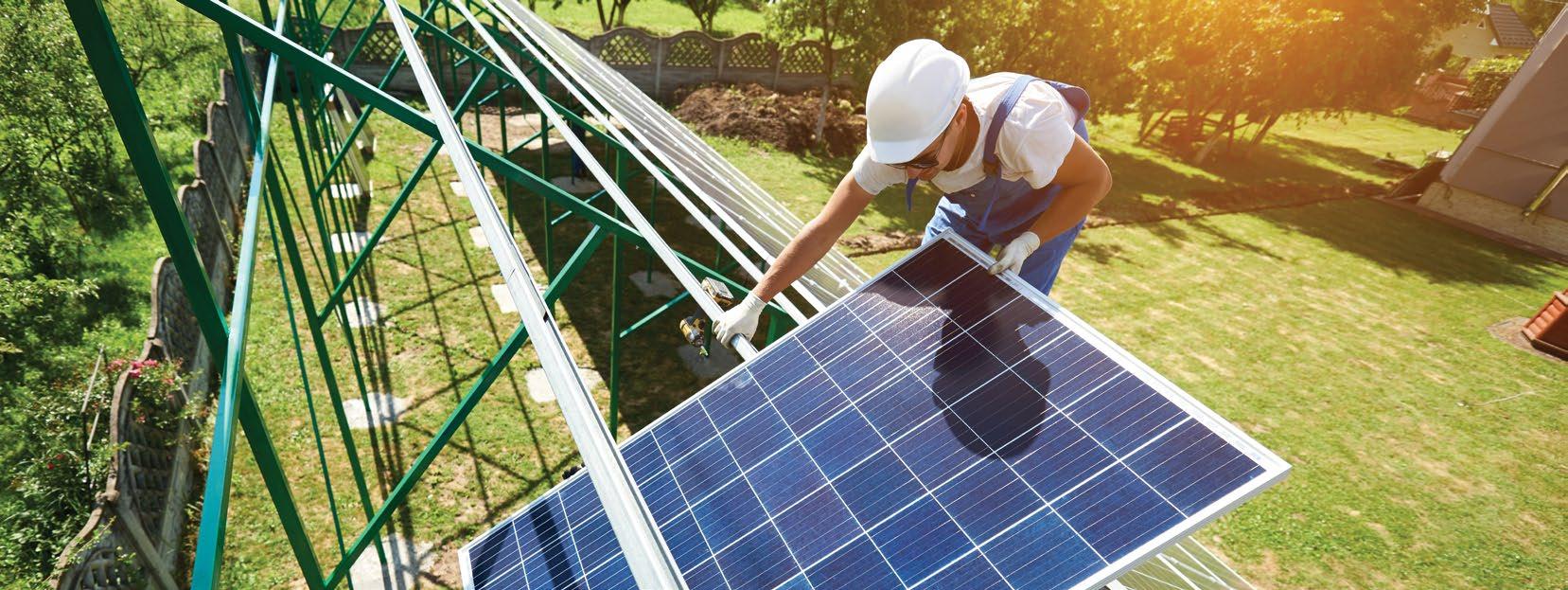
The ultimate reward of our solar energy projects will be felt by the local communities and industries, who will gain from enhanced energy security and the luxury of continuous electricity supply, even amidst loadshedding challenges. Moreover, this electricity will be more costeffective compared to conventional grid power.
Expanding our horizons, we are also actively exploring opportunities in the broader African market, aiming to bring our sustainable energy solutions to a wider audience across the continent.
What challenges and opportunities do you foresee with this new business?
Considering that many of these projects are situated away from major economic hubs, securing suppliers for essential products and services could pose a challenge. Yet, this scenario opens doors for cultivating local sourcing channels by forging partnerships with community members and businesses. Such collaborations promise not only skill development but also invaluable firsthand experience for the local workforce.
What does this venture mean for industry/ business/public regarding energy security and achieving ESG goals?
This venture stands as a beacon of progress for industry, business, and the public throughout South Africa and the broader African continent, highlighting a pivotal shift towards enhanced energy security and the fulfilment of Environmental, Social, and Governance (ESG) goals. By channelling investments into renewable energy, the initiative promises not only a reliable and sustainable energy supply but also a significant reduction in the vulnerability of industries to energy disruptions, thereby bolstering economic resilience.
"Expanding our horizons, we are also actively exploring opportunities in the broader African market, aiming to bring our sustainable energy solutions to a wider audience across the continent."
For businesses, the venture offers the dual benefits of operational stability and reduced energy costs, while also significantly lowering their environmental footprint. This alignment with global ESG standards enhances their appeal to investors who prioritise sustainability. Industries across the continent are set to experience a surge in innovation and competitiveness, fuelled by the accessibility of clean energy, while the wider public will benefit from environmental conservation and the creation of new jobs.
A cornerstone of this initiative is its leadership team, positioning Sinayo Energy at the forefront of gender empowerment within the African energy sector. By prioritising the advancement of women in key areas such as operations, procurement, and management, Sinayo Energy not only champions diversity and inclusion but also paves the way for a more equitable industry landscape.
Moreover, the venture acknowledges the profound social impact of secure energy access as a fundamental enabler of societal progress. Reliable energy underpins various facets of daily life and economic activity, from education and healthcare to industrial production and digital connectivity. In this light, the initiative's commitment to energy security transcends mere infrastructure development, embodying a catalyst for widespread social and economic empowerment across the continent.
This venture encapsulates a comprehensive approach to sustainable development, intertwining energy security
26 sabusinessintegrator.co.za Q&A: SINAYO
with ESG achievements, gender empowerment, and broad-based social impact, thereby setting a new standard for the African energy sector's evolution.
What do you think is critical in terms of diversifying business interests?
By diversifying our business portfolio, we not only reduce our reliance on any single revenue stream but also bolster our resilience and capacity to rapidly adapt to changing market conditions and seize emerging opportunities. This strategic approach fosters self-reliance, ensuring our sustainability and independence in the face of global economic fluctuations. Through economies of scale, we harness the power of diversification to build long-term resilience and adaptability, crucial for mitigating risks and sustaining our operations. At the core of our success lies a steadfast commitment to innovative strategies and breakthrough solutions, guiding us toward a future marked by sustainability and autonomous growth.
Our mission is to reshape the global landscape by democratising investments and pioneering transformative changes. We empower our clients and partners with unparalleled insights, leading to significant and sustainable wealth. Aware of the dynamic nature of the world and the evolving needs it brings, we stay ahead of the curve.
Moving forward, our strategy includes the advancement of Sinayo Energy and expanding our global footprint. We are dedicated to introducing innovative products and services for our clients, while also deepening our commitment to Environmental, Social, and Governance (ESG) standards, in line with our foundational mission and vision.
How will this venture into energy assist in unlocking opportunities for investors?
This venture into the energy sector, spearheaded by Sinayo Energy, is poised to unlock a wealth of opportunities for investors who align with our vision and mission. The energy market, particularly in South Africa and across the African continent, is characterised by a robust and growing demand. This demand, coupled with our strategic initiatives in renewable energy and sustainable solutions, positions Sinayo Energy as a promising avenue for investment.
Our mission is to reshape the global landscape by democratising investments and pioneering transformative changes."
Investors can anticipate higher-than-average returns on investment, reflecting the dynamic and essential nature of the energy sector. Our focus on innovation, sustainability, and market expansion not only meets the immediate energy needs but also contributes to longterm energy security and environmental stewardship. This unique combination of factors makes investing in Sinayo Energy projects an attractive proposition for those looking to contribute to sustainable development while achieving substantial financial gains.
Tell us a bit about the vision of Sinayo Global. As Sinayo Global, we touch the world by democratising
We are focussed on securing our future –:a call to action for energy independence. Our journey about transforming Africa into a first-world continent with secure and sustainable energy is not just a vision – it is a shared responsibility. As citizens of South Africa and the broader African continent, we stand at a critical juncture. The path we choose today will shape our tomorrow, impacting generations to come.
Embracing this duty involves collective action and a unified commitment to invest in renewable energy, support innovative ventures like Sinayo Energy, and champion policies that promote sustainability. By doing so, we not only safeguard our environment but also unlock unprecedented economic opportunities, driving Africa towards a brighter, more resilient future.
Let us rally together, with a spirit of unity and purpose, to fulfil this pivotal role. It is within our power to lay the foundations for an Africa that thrives on secure, clean, and efficient energy – ushering in an era of prosperity and sustainability for all.

27 sabusinessintegrator.co.za Q&A: SINAYO



Sinayo Securities (Pty) Ltd. (Sinayo) is the leading South African, independent, majority-black female-owned stockbroker and member of the Johannesburg Stock Exchange (JSE).
Sinayo’s vision and leadership are focused on the ambition to drive a legacy of sustainable transformation and inclusivity in the South African stockbroking industry. Central to this vision is the continued growth of a sustainable and valued business offering our clients high quality, differentiated products, services and tailored solutions.
We built our business on the foundation of experienced individuals with strong entrepreneurial spirit, combined with the formation of longstanding and impactful client relationships.
Inclusion is not a matter of political correctness; it is the key to growth and competitive advantage. Diversity and inclusion, the natural grounds for creativity and innovation, remain central to our work.
We have an experienced team of experts including data scientists, economists, stockbrokers, and strategists. We are proud that our team has been actively engaged in the JSE and financial markets for the last three decades. The depth of their skills and understanding ensures that we comply with regulations and handle trade, risk, and settlement activities.
Key to our strategy is the delivery of creative solutions that transform potential into favourable prospects while instilling confidence and inspiring our clients.
With Project Funda, we recognise and develop talent in research and leadership in the financial services industry.
Through supporting 180 children at the Golden Ark Care Centre in Soweto, Sinayo ensures that all learners go to school with full stomachs, ready to learn and make the most of the day ahead.
Sinayo Securities (Pty) Ltd
+27 11 783 6599 l info@sinayo.co.za
www.sinayo.co.za
WHY GREEN
hydrogen?
These days, much of the world is pinning its energy-transition hopes on green hydrogen as a fuel source. Why is this important for South Africa? The reasons are many, varied and compelling.
By Dr Karen Surridge, Project Manager Renewable Energy and Cleaner Fossil Fuels, SANEDI
Hydrogen is an energy carrier that can be used to generate electricity either indirectly by generating heat through combustion, or directly through an electrochemical process that takes place in a fuel cell. In both cases, water is the only by-product of the energy generation process.
Hydrogen is not in itself a green or renewable energy because the process to produce it is electricity intensive. Green hydrogen, therefore, is hydrogen produced using electricity from any renewable energy sources e.g. wind, solar, hydro etc.
The media and literature refer to multiple colours of hydrogen across the spectrum. This has nothing to do with the colour of hydrogen gas, which is colourless; it has to do with the source of energy used to produce

the electricity for the water-splitting process. Thus, depending on the type of energy used, different colour names are assigned to the hydrogen produced; for example, hydrogen produced using steam reforming from natural gas (methane) is named “grey hydrogen”; this is currently the most common “colour” of hydrogen.
Hydrogen is a highly versatile energy carrier that can be used in a wide range of applications. It is also understood how to store and transport the gas safely. As such, it has the potential to decarbonise traditionally ‘hard-toabate’ sectors such as heavy-duty transport, aviation and maritime, and industries like steel, cement and ammonia manufacturing that cannot be fully decarbonised through renewable energy and direct electrification or renewable energy with battery storage.
ENERGY
30 sabusinessintegrator.co.za
Why should South Africa focus on green hydrogen?
Firstly, because it is a technology that can help the country achieve netzero carbon status by the 2050 target date, and South Africa already has welldeveloped expertise in the Fischer-Tropsch technology.



Secondly, and at least as important, are the opportunities to industrialise the economy that green hydrogen can create, given that South Africa is home to some of the most essential raw materials needed to produce it. These are platinum group metals (PGMs), abundant sun- and wind-energy resources, and the land on which to establish industrial-scale renewable energy (RE) plants. PGMs are used extensively in manufacturing membranes and catalysts in electrolysers, and South Africa has the world’s most extensive resources for these metals. South Africa can also be a major exporter of green ammonia (a carrier of green hydrogen) to Europe and the Far East.
The combination of these resources and the anticipated local demand for green hydrogen created by carbon-intensive industries make the country an attractive base for OEMs (Original Equipment Manufacturers) to establish manufacturing plants for the components needed to build RE plants and produce green hydrogen. In addition, South Africa has an established manufacturing industry, expertise in the production of synthetic fuels and a vast labour force that is “completely trainable”, in the words of the country’s Green Hydrogen Commercialisation Strategy.
Local manufacturing creates jobs, energy self-sufficiency and security, and export opportunities, all needed to ensure an energy transition that is not only just but delivers tangible socio-economic benefits to all South Africans.
Green hydrogen state of play
Global demand for hydrogen reached an estimated 90 million tonnes in 2020 and is expected to grow to between 500 million and 680 million tonnes by 2050. The export market will account for 100 million to 180 million tonnes.
Given this potential, South Africa’s nascent green hydrogen economy is being studied and structured from different angles.
In June 2021, the Minister of Trade, Industry and Competition established the Green Hydrogen (GH2) Commercialisation Panel, led by the Industrial Development Corporation (IDC). The panel has private and public sector members and, drawing on the Hydrogen South Africa (HySA) programme and the Hydrogen Society Road Map (HSRM) developed South Africa’s Green Hydrogen Commercialisation Strategy and Action Plan approved by the Cabinet in 2022.
Over the past few months, Infrastructure SA, a Ministry of Public Works programme, identified a pipeline of 19 green hydrogen projects valued at more than R300 billion. The IDC also secured €23 million in grant funds from the German government to support the development of South Africa’s green hydrogen economy and help accelerate the country’s transition to renewable energy.
In this process, the notion that we could grow into a significant supplier of the raw materials, technology and products the world needs to clean up its energy act is an exciting and inspiring goal for the nation to unite behind.
ENERGY
31 sabusinessintegrator.co.za
NUCLEAR POWER: a viable investment to address the electricity crisis
As South Africa grapples with electricity supply shortages that result in loadshedding and its debilitating effects on the economy, it has become clear that an energy-mix approach could provide a solution.
By Zizamele Mbambo, Deputy Director General: Nuclear Energy, Department of Mineral Resources and Energy

South Africa will only be able to meet its electricity demand by deploying a variety of electricity generation technologies. Such technologies include but are not limited to coal, which currently contributes more than 90% of the country’s electricity, nuclear, gas, hydrogen, solar and wind.
Global studies show that more countries are introducing larger shares of variable renewable energy (VRE) as part of the energy mix, and this requires active investment and new technologies to ensure grid reliability.
The advantages of nuclear power
Nuclear power is one such technology. Nuclear energy technology is regarded as a baseload electricity source as it operates continuously to meet minimum levels of power demands, thereby contributing to the stability of an electricity grid. Nuclear power plants have a stable and highly predictable output, providing a reliable, uninterrupted electricity supply.
The significance of nuclear energy was sufficiently demonstrated at the 28th Conference of the Parties (COP28) to the United Nations Framework Convention on Climate Change in the United Arab Emirates when 22 world leaders signed a declaration to make efforts to triple nuclear energy by 2050.
32 sabusinessintegrator.co.za ENERGY
The role of nuclear power as part of the energy mix in South Africa is more pertinent now than ever before, particularly given the planned decommissioning of a significant amount of baseload coal capacity by 2030. The baseload power from nuclear power can complement intermittent renewable energy sources to ensure a reliable low-carbon electricity supply and grid stability.
It is for this reason that the government is in the process of procuring 2 500 MW of nuclear energy generation capacity in line with the Integrated Resource Plan. This electricity generation policy seeks to ensure the security of the electricity supply while taking into account the
need to protect our natural environment. The request for proposals regarding the 2 500 MW of nuclear energy is expected to be released shortly.
Pleasingly, the International Energy Agency (IEA) concludes in its report on Nuclear Power and Energy Transitions that “nuclear energy can help make the energy sector’s journey away from unabated fossil fuels faster and more secure.” The IEA further postulates that “nuclear is well placed to help decarbonise electricity supply” and that “nuclear power plays a significant role in a secure global pathway to net zero.” These conclusions bolster the government’s quest to invest in nuclear energy generation.
The economic benefits of investing in nuclear energy
While we acknowledge that commissioning a nuclear power plant is a capital-intensive exercise, we are also encouraged by the reality that once operational, a nuclear plant will provide the cheapest source of electricity.
Fuel costs for nuclear power plants are much lower than those of conventional fossil electricity generation. Levelised costs for various energy sources with comparisons between traditional and renewable technologies show that nuclear plant fuel costs are less than 10%. In contrast, coal is around 40-58%, with gas somewhere in between. This indicates nuclear power’s competitive advantage when considering fuel costs for conventional electricity generation technologies.
Nuclear power presents one of the most favourable cases for long-term consumer electricity price stability. Nuclear energy assets possess the second most extended operational lifetime (60 or more years) compared to other electricity generation technologies. This implies that after the plant is paid off, which can take between 20 and 30 years, as in the case of the Koeberg nuclear power plant, it can provide the cheapest electricity to the grid.
In addition to a higher plant capacity factor (nuclear 90%, coal 80%, gas 80%, wind 30-45%, solar 14-50%), nuclear power plants have relatively low grid-level costs, ultimately benefiting the consumers.
much-needed job opportunities. According to research
be created at various stages of a nuclear power plant.
Over and above the possible benefits to electricity consumers, nuclear energy can significantly contribute to the country’s economic development by creating much-needed job opportunities. According to research by Rothwell on Measuring Employment Generated by the Nuclear Power Sector, many job opportunities can be created at various stages of a nuclear power plant. The study observes that:
• 12 000 job-years can be created during the site preparation and construction of a typical 1 000 MW reactor;
• over 50 years of operation, annually, there are about 600 administrative, operation and maintenance, and permanently contracted staff;
• during the decommissioning period, there are about 500 employees annually for 10 years; and
• for about 40 years, there have been approximately 80 employees managing radioactive waste.
Given the availability of technical skills in South Africa coupled with policy support, tight cost control measures and adherence to stringent project management requirements, there is no doubt that a nuclear build programme can be delivered on time and within budget.
Therefore, as an emerging economy, it is in our interest to invest actively in nuclear energy to strengthen our electricity generation capacity and, ultimately, our economy.
preparation and construction of a typical 1 000 MW economy.
33 sabusinessintegrator.co.za ENERGY
2024 MUST BE THE YEAR OF
sustainable investment
In response to Finance Minister Enoch Godongwana's 2024 Budget Speech announcement of US$3.3 billion to support climate change, energy, and just transition goals, Carl Roothman, CEO of Sanlam Investments advocates for urgent and decisive action to address the escalating climate crisis – starting in South Africa and Africa.
By Carl Roothman, CEO at Sanlam Investments


OPINION
34 sabusinessintegrator.co.za
By 2050, we will need three Earths to sustain our current standard of living. This is based on the Global Footprint Network’s research that shows humanity consumes natural resources 1.75 times faster than our planet can replenish them. So, 2024 must be a year of shared decisive action.
In 2020, global sustainable investment grew to US$35.3 trillion (R662 trillion) across five major markets. 2024 will be the year sustainable investing ‘grows up’, expands widely, and convinces more stakeholders that deploying capital to creative, circular solutions, and to the most financially viable companies is critical for our planet’s future. The Intergovernmental Panel on Climate Change estimates that it will cost 2-4 % of global GDP (by 2050) to limit global warming to 1.5%. With humanity’s future hanging in the balance, this seems a very small price to pay.
the 20 costliest climate disasters of 2023 consistently impacted the globe’s poorest populations – those least able to afford to rebuild – the most. Developing countries – which also have less of a role in causing climate change – will be the hardest hit by food insecurity, water scarcity, infectious diseases and loss of livelihood. Recent flooding in KwaZulu-Natal is evidence of this.
To move to a carbon-neutral world by 2050, we must effectively transition to renewables. Currently, the financial sector is not pricing climate transition risk sufficiently. Due to a lack of a clear policy signal, many asset managers have adopted a wait-and-see strategy, meaning there will be no massive reallocation of capital.
This cannot continue to be the case. The net-zero transition calls for massive investment. The global grid alone needs to increase fivefold to support more renewable energy. Now is the time for asset managers to ‘back’ the carbon winners of tomorrow.
Developing countries – which also have less of a role in causing climate change –will be the hardest hit by food insecurity, water scarcity, infectious diseases and loss of livelihood "
Why sustainable investing matters more now than ever
Sustainable investment is one of the best, most innovative means of redeploying capital where it counts. Now is the moment to correct our global ecological overspending to arrest further depletion of precious shared resources. With this comes significant opportunity.
Investors play a pivotal part in choosing which companies to invest in. Additionally, asset managers are responsible for calling out the laggards and championing the leaders. We’re at the point where a business’ sustainability agenda should impact its bottom line.
Here are three focus areas for sustainable investing in 2024:
Climate Change: Munich Re found thunderstorms and earthquakes cost the globe about US$250 billion (R5 billion) last year. The Christian Aid NGO also found that
Biodiversity Loss: this year, we’re likely to see a significant increase in company investments contributing to combatting biodiversity loss.
• The World Economic Forum (WEF) says over half the global economy – worth about $44 trillion (R831 trillion) – is dependent on nature.
• Global pollinator population declines are impacting crop fertilisation, jeopardising world food security.
• The Food and Agriculture Organization (FAO) estimates about a third of all food is wasted annually.
• The World Wildlife Fund (WWF) documents a 69% average loss in mammal, bird, reptile, fish, and amphibian species from 1970 to 2022.
According to the WEF, moving to a nature-positive economy could unlock $10 trillion (R190 trillion) in business opportunities and social returns.
Human Rights Abuses: just 11% of companies actively monitor risks with their global suppliers, such as child labour or living wages, according to the Corporate Human Rights Benchmark. Regulatory shifts will probably prompt this to change at pace. For example, the Corporate Sustainability Reporting Directive in the EU now requires large companies to disclose their impact on people and the planet.
OPINION
35 sabusinessintegrator.co.za
How we’re making a difference today Environmental, Social and Governance (ESG ) is a global megatrend. At Sanlam Investments, sustainability is part of our DNA. Our investments are rooted in making a meaningful impact towards a better future – environmentally, socially and from a governance perspective. South Africa and Africa urgently need to tackle critical challenges such as energy, food and water security. We must all share responsibility for safeguarding resources and bolstering resilience in our most vulnerable communities. That’s how we empower all Africans to be financially confident, secure, and prosperous.
Recent examples of our commitment:
• In 2017, we joined the Dutch Development Bank, FMO, as a shareholder in a strategic partnership with Climate Fund Managers (CFM). Through our partnership with CFM, we can respond to the world's urgent climate crisis, particularly in developing economies.
• CFM uses blended finance structuring to attract public and private capital into high-impact sectors. They strive to make sustainable investments into climate-themed sectors relating to green energy, clean water, and sanitation, as well as the protection of coastal ecosystems.
• CFM raised $950 million (R17 billion) into Climate Investor One (CI1) – a dedicated renewable energy fund investing in projects in developing economies. It is now fundraising for Climate Investor Two (CI2), a fund focusing on water, sanitation, and ocean in the same geographies –having raised over US$ 850 million in commitments to date. Sanlam’s contribution to these funds and initiatives is approximately $70m (R1,3 billion).
• Additionally, ‘SDG Namibia One’ was announced at COP27. A collaboration between CFM, the Namibia Government’s Environmental Investment Fund and Invest International focuses on energy transition and green hydrogen, seeking to raise $1 billion (R19 billion) in funding. An initiative with the same objectives for South Africa was announced last year with Invest International, the DBSA and the IDC. These initiatives both fall under the Climate Investor 3 umbrella, with further countries currently under consideration.
• As a result, we are delivering a significant impact to communities across Africa, Asia, and
Latin America – through access to renewable energy, climate-resilient water supply and waste management services – and to the planet by mitigating the effects of and adapting to climate change, even in places such as the Galapagos Islands.
• Our dedicated Sanlam Investments Sustainable Infrastructure Fund aims to invest R11 billion in local projects that drive economic growth, market development and job growth, emphasising environmental sustainability in South Africa.
• In the past decade, the Sanlam Group has successfully invested more than R12 billion in the construction and operation of long-term sustainable infrastructure projects throughout South Africa and the rest of Africa. Sanlam’s infrastructure investments span crucial sectors, including renewable energy, conventional power generation, telecommunication, transportation, digital infrastructure, water infrastructure and Public Private Partnership (PPP) assets. These include at least 32 investments across different geographies in South Africa, Mozambique, Egypt, and Nigeria.
In combatting biodiversity loss, Sanlam Group is the first and, currently, the only adopter from South Africa, and one of a select few within the African continent, of the Taskforce on Nature-related Financial Disclosures (TNFD). This reporting framework identifies how nature affects an organisation’s immediate financial performance, or the longer-term financial risks that may arise from how the organisation, positively or negatively, impacts nature. This commitment is not merely symbolic; it is reflected in our proactive engagement and strategic investments through our portfolio companies, underscoring our role as a leader in finance and fostering a sustainable future for all.
It’s not too late.
We can still course correct, but only if we act today. Asset managers and investors should be confident that they have a pivotal role in directing capital to where it will have maximal impact in the future we need.
36 sabusinessintegrator.co.za OPINION


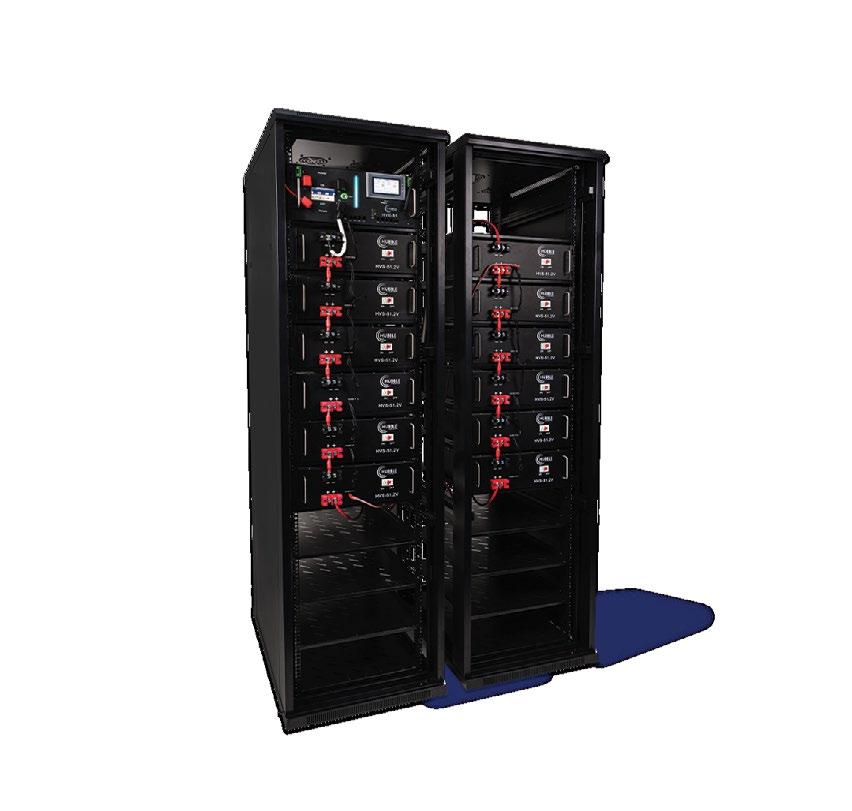
Energy from solar panels or the grid is stored in a convenient, transportable, and easy-to-install modular design Stay connected and manage your business’s energy using an intelligent touchscreen display and integrated Cloudlink for remote monitoring Residential | Commercial | Industrial hubbleenergy com Store Control Power your business with innovative, smart technology Your business is protected against power outages with wi-fi enabled monitoring for both live and historical data Power Protect JOIN THE HUBBLE HIGH VOLTAGE EVOLUTION POWERING YOUR BUSINESS.

New health risks
for businesses
Since COVID-19 struck, the world has faced many new challenges testing the resilience of businesses and their people – particularly as most of these risks have noticeably increased over the past year.
Dr
Chris van Straten, Global Health Advisor Clinical Governance at International SOS, points out that the increasing impacts of climate change, in the form of extreme weather events, are already being felt in Africa and globally.
Data shows that more severe risks to workers travelling on the extreme weather events in Africa
Data shows that more severe weather events increase the risks to workers travelling on the continent. According to Carbon Brief, an analysis of disaster records in 2022 found that extreme weather events in Africa killed at least 4 000 people and affected a further 19 million.
of the local workforce’s unique emergency response procedures.
For example, heatwaves, storms, and floods can cause infrastructure outages, damage transport networks, and increase the
“Extreme events pose risks to business travellers and international assignees, who may not have the same understanding of the local workforce’s unique geography, weather systems and emergency response procedures. For example, heatwaves, storms, and floods can cause infrastructure outages, damage transport networks, and increase the prevalence of certain infectious and non-infectious diseases. are already being felt in Africa and

CLIMATE CHANGE
38 sabusinessintegrator.co.za
Extreme weather links to the spread of disease
“However, the biggest challenge created by changes in the global climatic profile is that it also alters the disease map. Higher average temperatures and increased rainfall or humidity will also extend the spread of some vectorborne diseases into new areas. Bacterial food and waterborne gastrointestinal infections – such as vibrio cholera – are also on the increase, while there is emerging evidence linking rising temperatures to kidney disease,” adds Dr van Straten.
“As the disease map shifts, Africa in particular, has witnessed an increase in infectious diseases such as malaria, cholera and neglected tropical diseases (NTDs). This topic was also highlighted at COP28 in December where they held the first-ever Health Day –with the conversation focusing on how climate change
Businesses must build resilience
African businesses need to adjust and start anticipating, assessing, and adapting to ensure that the appropriate support systems are in place for employees and operations to be resilient to threats such as extreme weather events.
The recent International SOS Risk Outlook report for 2024 confirms that climate change is perceived as a top risk for organisations. 76% of primary decision makers surveyed believe that extreme weather events will significantly impact their business and workforce.
“However, it is concerning that too many organisations are not prepared to mitigate those risks. Half of the respondents report that they have already seen their operations affected by climate-related events. The same percentage also states that they have not factored it into their health and security plans. This is despite the rising trend in the climate-related alerts issued by International SOS,” Dr van Straten says.
“Compared to 2022, in terms of the alerts issued to our clients, there were 80% and 30% more medical and
relating to extreme heat, air pollution and the spread of vector-borne diseases is affecting health in countries that have never experienced them before.”
The evidence of this is being seen and felt globally. A sobering example is the recent cholera outbreak, accounting for over 667 000 cases and more than 4 000 deaths globally last year. The eastern and southern African nations are among the worst affected, accounting for about 75% of the fatalities and a third of the cases as of 15 January 2024. As per the WHO, “extreme climate events like floods, cyclones and droughts reduce access to clean water and create an ideal environment for cholera to thrive.”

security climate-related alerts, respectively, last year, and a four-fold increase in climate-related special advisories.
“Creating resilience will require businesses to have access to reliable hazard monitoring tools and processes, and robust risk reduction and response mechanisms, to identify and mitigate climate-related crises. Organisations that have risk management systems in place in this new environment are proven to be more resilient.”
and a third of the cases as of 15 January 2024. As water and create an ideal environment for cholera resilience hazard risk to be more resilient.”
Climate and Health, everyone needs to collectively
“With over 123 countries signing the declaration on Climate and Health, everyone needs to collectively be proactive and take the necessary steps to mitigate future risks. At International SOS, we are committed to raising awareness around climate change and health, adding the ‘H’ to ESG as the catalyst of the positive changes we want to see. Being proactive regarding risk management is ultimately key to mitigating the rising challenges of climate change and infectious diseases across the African continent,” concludes Dr van Straten.
to raising awareness around climate change and regarding risk management is ultimately key to concludes Dr van Straten.
CLIMATE CHANGE
39 sabusinessintegrator.co.za
PROTECTION OF
water resources
“Water preservation and equitable distribution are critical in the near, medium and long term,” says Malcolm Curror, Chief Executive of United Manganese of Kalahari (UMK). “Businesses must consider pitching in to ensure community water security. Access to water and sanitation is a United Nations Sustainable Development Goal.”
South Africa is facing a potential dry season due to the El Niño weather pattern and ageing infrastructure. Large metros, like Johannesburg, have recently seen water shedding and restrictions impact homes and businesses. The country is already listed as a water-scarce region and recent reports indicate that the country may face a pending water crisis.
Curror makes the point that “Water is life, but water also fuels industry and concomitant economic growth.” A water crisis would be exponentially more damaging to the country than load-shedding, he adds. “Our mine operates in one of the country’s most arid regions, the Northern Cape desert area, and we have firsthand experience of the impact of water scarcity for communities, food security and industry alike.”
Positive intervention from companies in their geographic places of business could make a significant difference. Where the quantum might be substantial, several companies could partner and, in turn, work with local authorities, stakeholders and other role players to craft and implement sustainable solutions. “Together, key infrastructure development and community development projects that improve the lives and livelihoods of communities can be identified and proactively hedged against any challenge,” Curror says.
As a positive example, UMK worked with labour, community and local authorities to develop two water augmentation projects recently that included infrastructure development such as a pump station, an outlet pipeline, reticulation facilities, chlorination facilities, storage tanks and fenced-off boreholes that
now deliver a regular supply of clean, drinkable water at the Pompong and GaSehunelo plants in the Joe Morolong Municipal area. The project had a collective price tag of R 15 million.

“Key socio-economic outcomes, beyond the supply of drinking water, included added food security and the potential to develop entrepreneurs in the area. Water can make all of this possible, and the lack of it can devastate cities, towns and communities,” says Curror.
While these projects were initiated to provide water to previously underserved areas, Curror says that the success and quick turnaround of the initiative is proof that public and private partnerships that aim to preserve a critical resource, like water, can be effective. “It holds the potential to turn challenging situations around while also providing life-giving services to communities who have not yet benefitted from national development,” he says.
Curror concludes: “It is time that private enterprise takes up the challenge and starts at home, on their doorstep, to improve the lives of the communities they serve and, simultaneously, contribute positively to the water security of everyone. We do not want to end up with a major national water crisis when we could have all worked together to prevent it.”
40 sabusinessintegrator.co.za
WATER

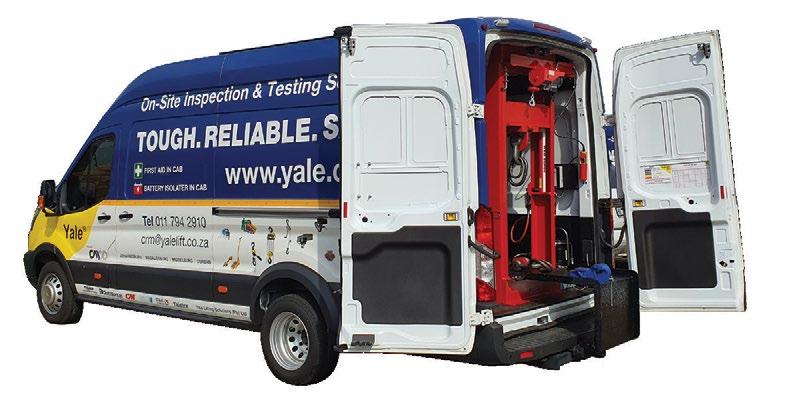
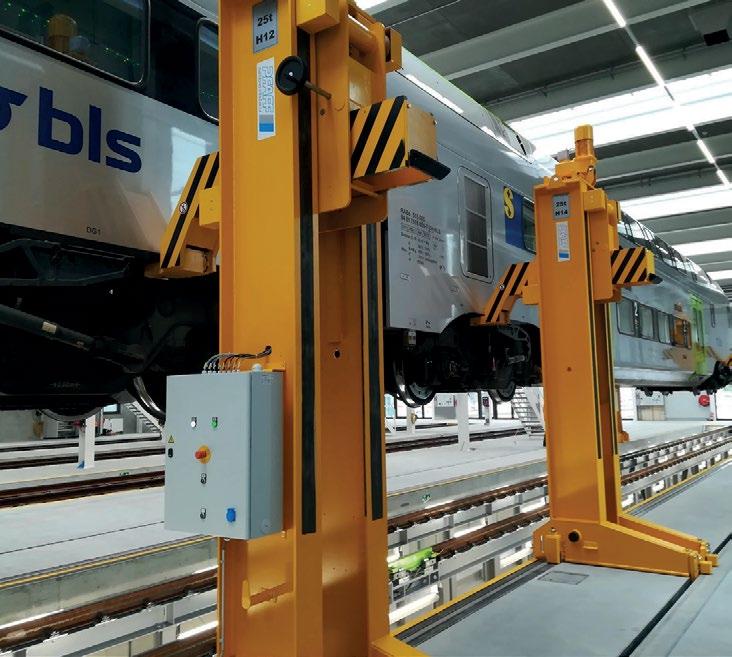


FOR ALL YOUR LIFTING REQUIREMENTS Tel 011 794 2910 Email info@yalelift.co.za (General) | crm@yalelift.co.za (Sales) www.yale.co.za INDUSTRIAL HOISTING EQUIPMENT ASSET & INSPECTION MANAGEMENT SOLUTIONS ON-SITE SERVICE & EXPERT TRAINING ENGINEERED PRODUCTS & SERVICES
impact on taxpayers SA’s 2024 Budget & its
From the affluent elite to the struggling masses, every stratum of society stands to be affected by the allocations and adjustments tabled by the Minister of Finance, Enoch Godongwana.
By Beatrie Gouws, Tax Director at BDO, and David Warneke, Assoc. Prof. and Tax Partner at BDO

"... government has not insulated any taxpayers from the impact of inflation on the PIT that they pay."
TAX
42 sabusinessintegrator.co.za
South Africans breathed a collective sigh of relief as the 2024 budget avoided any rate increases to income tax for the 2024/2025 fiscal year. However, while there were no rate increases, the tax tables were not adjusted for inflation either, which means different scenarios for different taxpayers across the top, middle, and bottom tiers.
Traditionally, the government adjusts tax thresholds annually to counteract the effects of inflation. However, for 2024, these thresholds will stay the same. This means the possibility of bracket creep for earners other than those at the highest tax rate; if an inflation-related raise is given, earners may be pushed into a new tax bracket and pay relatively more tax. Individuals are expected to pay R16 billion more tax during the 2024/25 fiscal year.
Here is where earners in each tier can further expect to feel the impact of what was tabled.
Top-tier taxpayers
Historically, these taxpayers have borne the brunt of tax hikes and policy changes aimed at redistributing wealth and bolstering social programmes. However, in recent years, there has been growing discontent among highincome earners, who argue that excessive taxation stifles entrepreneurship and undermines economic growth.
Another growing concern for the economy's health is the number of top-tier earners who choose to emigrate due to increasingly high taxes, amongst other reasons. The 2024 BRICS Wealth Report has revealed that many superwealthy individuals are leaving South Africa. The report highlighted that South Africa was home to 37 400 US dollar millionaires (including 102 centi-millionaires and five billionaires) at the end of 2023 – a 20% decline from 2013. This means South Africa has lost approximately 9 350 USdollar millionaires over the past 10 years, although this is also due to the devaluation of the rand against the dollar over this period.
Tax statistics provided by SARS also show that over 32 000 people ended their tax residency in South Africa between 2017 and 2021. Of those individuals, approximately 2 700 earned more than R500 000 annually and 1 100 earned more than R1 million annually.
If an increasing number of SA’s wealthiest people leave the country, the number of those relatively few taxpayers who pay tax will decline. This includes South Africans who have
been living outside the country for many years and who, if they cease their South African tax residency, will no longer pay tax in the country on income earned from a nonSouth African source.
In the aftermath of the 2024 budget speech, affluent taxpayers will be scrutinising the fine print of tax legislation, the possibility of the introduction of NHI, and weighing the implications for their financial portfolios and long-term wealth accumulation strategies to decide whether sticking around is worth it.
Middle-tier taxpayers
Moving down the socio-economic ladder, we find the middle-tier taxpayers, a diverse cohort of salaried professionals, small business owners and aspiring entrepreneurs – confronted with some of the world's highest effective personal income tax (PIT) burdens. For this demographic, the budget speech represents a delicate balancing act between growth aspirations and the realities of fiscal constraints and economic uncertainty. Unlike top-tier earners, those in the middle typically lack a savings safety net and the resources to legally structure their affairs in the most tax-efficient manner, leaving them much more vulnerable to the direct impacts of budgetary decisions.
While top-tier taxpayers are not as negatively affected by bracket creep on a percentage basis, middle- and lower-tier taxpayers should keep a keen eye out for the possible effect of an annual salary increase on their tax rate and their take-home pay. Unfortunately, this year, the government has not insulated any taxpayers from the impact of inflation on the PIT that they pay.
Further impact will be felt from the increase in so-called ‘rats and mice taxes’. These are taxes on items such as plastic bags, light bulbs, and sin taxes. If we add up all these indirect taxes, calculate the amount per rand that earners will be paying, and compare this with what these earners were paying in 2023, the difference will be surprising. With PIT as a proportion of total revenue collected increasing by 2% in 2024 compared to 2023, and with around 5% of the population paying about 92% of PIT, the ripple effects will be a reduction in spending from these earners because they are going to have substantially fewer rands in their pockets. The economy will continue to be moribund, with the middle tier left with even less money to spend.
TAX
43 sabusinessintegrator.co.za

Lower-tier taxpayers
The decision to provide no relief to lower-tier earners was a surprising one – particularly in an election year. Inflationary and, in tough years, even below-inflationary adjustments were typically provided for these individuals, with an indirect effect on their dependents. Unlike their wealthier fellow citizens, bottom-tier taxpayers have very little financial resilience and few buffers to cushion the economic blows of increased taxes, leaving them disproportionately vulnerable to the effects of budgetary decisions.
Those outside of the PIT net
For millions of South Africans living on the margins of society, social grants have unfortunately not been increased as much as inflation – the increases are lower than the current inflation rate of 5.3% between January 2023 and January 2024. South Africa has one of the world’s most expansive social grant systems: 47% of the population relies on a monthly grant, and the impact of lower increases is expected to place a further burden on this demographic, which is already grappling with poverty, unemployment, and socio-economic exclusion. This is perhaps where one finds the most unsuspecting victim of bracket creep: individuals who previously fell below the PIT thresholds but find themselves unexpectedly in the company of the personal income taxpayers after an annual salary increase.
Questions remain
The R16.3 billion extra that will be extracted in PIT for 2024/2025, and the knock-on effects thereof –which will be R17.3 billion in 2025/2026 and R18.6 billion in 2026/2027 – seems a drop in the ocean when considering an R1.8 trillion budget. Was this increase necessary at all, especially considering that households are under immense pressure and the country’s income tax burden is one of the highest among middle-income earners in the world? It begs the question of whether there was an alternative to taking that revenue and, instead, providing complete inflationary income tax relief that would have yielded more positive results for the economy as a whole.
44 sabusinessintegrator.co.za
TAX

challenges retirement norms Landmark judgement
A judgement by the Labour Court confirms the current untenable position that many workingclass South Africans find themselves in – being unable
to retire comfortably at the standard retirement age, thus necessitating working beyond retirement.
By Deon Visagie, Partner & Jamie Jacobs, Associate from Webber Wentzel

"The Court found that the true reason for the employee’s dismissal was based on the employer’s operational requirements..."
In Seokwane v Bidvest Prestige Cleaning Services (Pty) Ltd (Seokwane), the Labour Court found that a general worker was discriminated against because of her age upon being dismissed by her employer. As a result, the dismissal was accordingly automatically unfair.
The employee was hired on a standard three-year fixed-term employment contract, even though the employee was already 62 years old, which was over the stipulated retirement age (60 years) as stated in the employer’s retirement policy. The Court found that the true reason for the employee’s dismissal was based on the employer’s operational requirements, which means that the employer was not able to use section 187(2)(b) of the Labour Relations Act (LRA) as a defence for its conduct.
Section 187(2)(b) of the LRA allows employers to be protected from claims of unfair discrimination on the grounds of age if the reason for, or proximate cause of the dismissal is that the employee has already reached the standard or agreed retirement age. The Court
EMPLOYMENT
46 sabusinessintegrator.co.za
reasoned that the employee was subjected to an automatically unfair dismissal (based on age discrimination) and should be compensated in an amount equivalent to 12 months’ remuneration at her rate of remuneration on dismissal.
A recent report by 10X Investments cited figures provided by the National Treasury, indicating that only 6% of South Africans are on track to retire comfortably. The report further identified that many economically active South Africans have not formally planned their retirement, and those who had were unsure whether they would have sufficient funds to support themselves in old age. The report points to various factors, which include, but are not limited to the current economic climate, the high interest rates and the impact of the Covid-19 pandemic. Many employees, like the employee in this particular judgement, are in a similar situation because they have not saved enough for retirement, and envisage life after retirement as a period in which they will have to take up further employment to afford the cost of living.
Employers are thus encouraged to evaluate whether reemploying retired employees or those who are approaching or have reached retirement age would mean waiving their employers' rights associated with retirement-age employees. If they do so, they cannot later rely on the stipulated retirement age as a reason to terminate their employees’ contracts. Employees over 60 years of age who are terminated for reasons other than reaching retirement age may be able to argue that they were a victim of automatically unfair dismissal and that they were unfairly discriminated against based only on their age.
Employers must ensure stringent and transparent implementation of their retirement policies, and if they deviate from the provisions in these policies, they must ensure that the employment agreements in respect of those employees consider their specific circumstances.


EMPLOYMENT
47 sabusinessintegrator.co.za
2024 earnings threshold announced
On 1 April 2024, the earnings threshold will increase to R254 371.67, entitling employees falling below the new threshold to stricter protections in terms of labour legislation.
By Brett Abraham and Mehnaaz Bux, Partners at Webber Wentzel
The earnings threshold will increase to ZAR 254,371.67 with effect from 1 April 2024. This represents an increase of ZAR 13,261.08 from the current earnings threshold of ZAR 241,110.59. The earnings threshold, a determination in terms of section 6(3) of the Basic Conditions of Employment Act (BCEA), impacts the applicability of certain of the provisions of the BCEA, the Labour Relations Act (LRA), and the Employment Equity Act (EEA). Employees who earn above the threshold are not entitled to certain protections afforded to those who earn below the threshold.
• Sections of the BCEA regulating ordinary hours of work, overtime, meal intervals, daily and weekly rest periods, Sunday pay, pay for night work and pay for work on public holidays only apply to employees earning below the threshold.
• Employees earning above the threshold are not subject to the deeming provisions that apply to temporary employment services (labour brokers) and fixed-term employment provisions under the LRA.
• In the EEA, employees earning above the threshold cannot refer disputes relating to unfair discrimination to the CCMA for arbitration unless it is related to sexual harassment, or all parties agree to arbitration.
Implications for employers
The determination delineates what is to be included in the definition of “Earnings” for calculating whether an employee falls above or below the earnings threshold, and an understanding of this is essential in seeking to minimise the risk of noncompliance with the BCEA. Significantly, “Earnings” in this context must be differentiated from that which may otherwise be included in ‘remuneration’ in terms of the Ministerial Determination regulating the Calculation of Employee's Remuneration in terms of section 35(5) of the BCEA.

The increase to the earnings threshold may result in an increased number of employees becoming entitled to the stricter protections afforded to such employees in labour legislation, such as overtime payments. This may, in turn, have financial consequences for employers. All employers should conduct an assessment to ensure that the increase and its consequences are accounted for in the workplace and, where necessary, that changes to the employment contracts or remuneration structures are affected in order to mitigate the risks of any unintended contraventions of the BCEA or the deeming provisions applicable to atypical employment arrangements.
48 sabusinessintegrator.co.za REMUNERATION




































 Tashne Singh
Tashne Singh



























































































































































